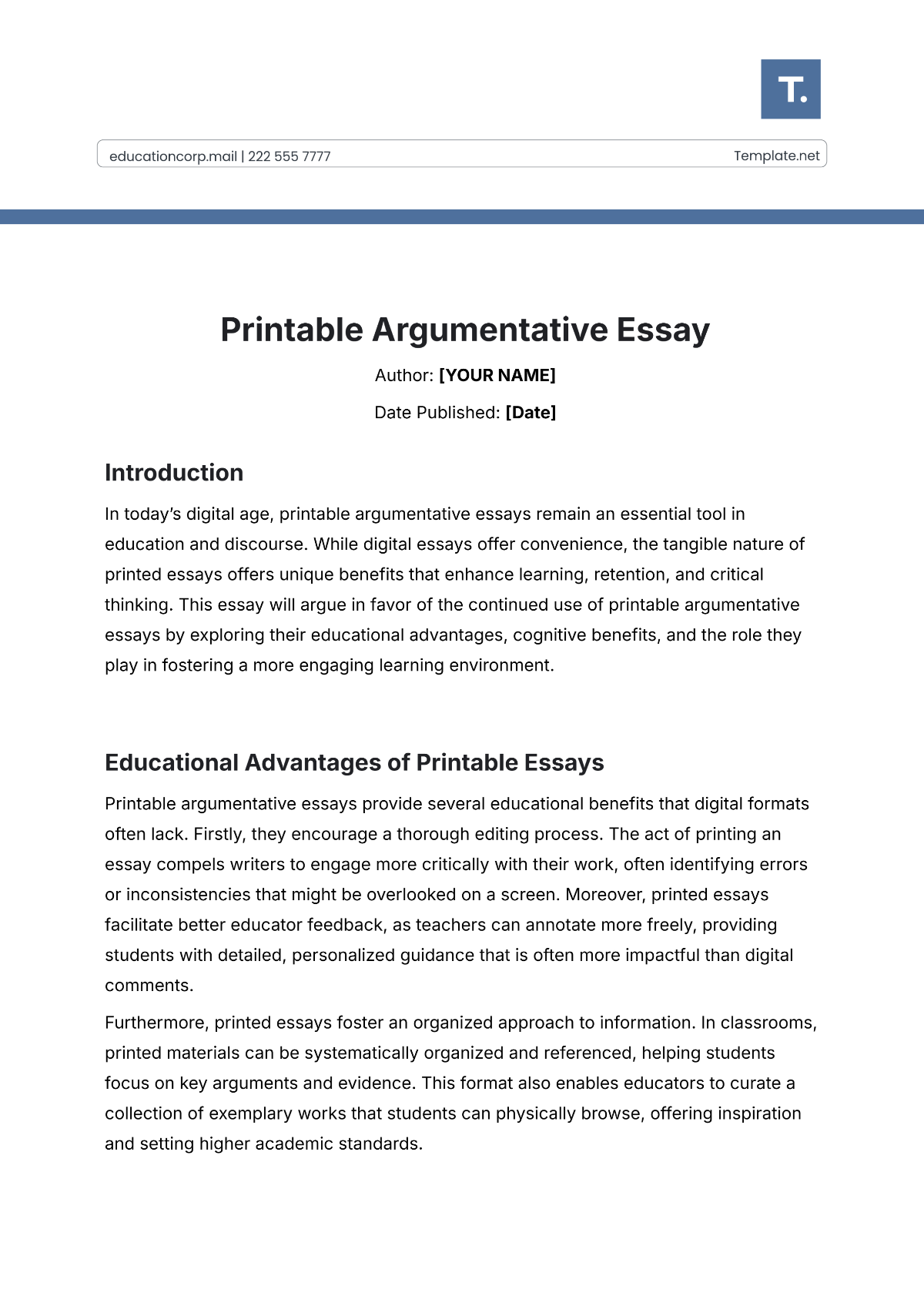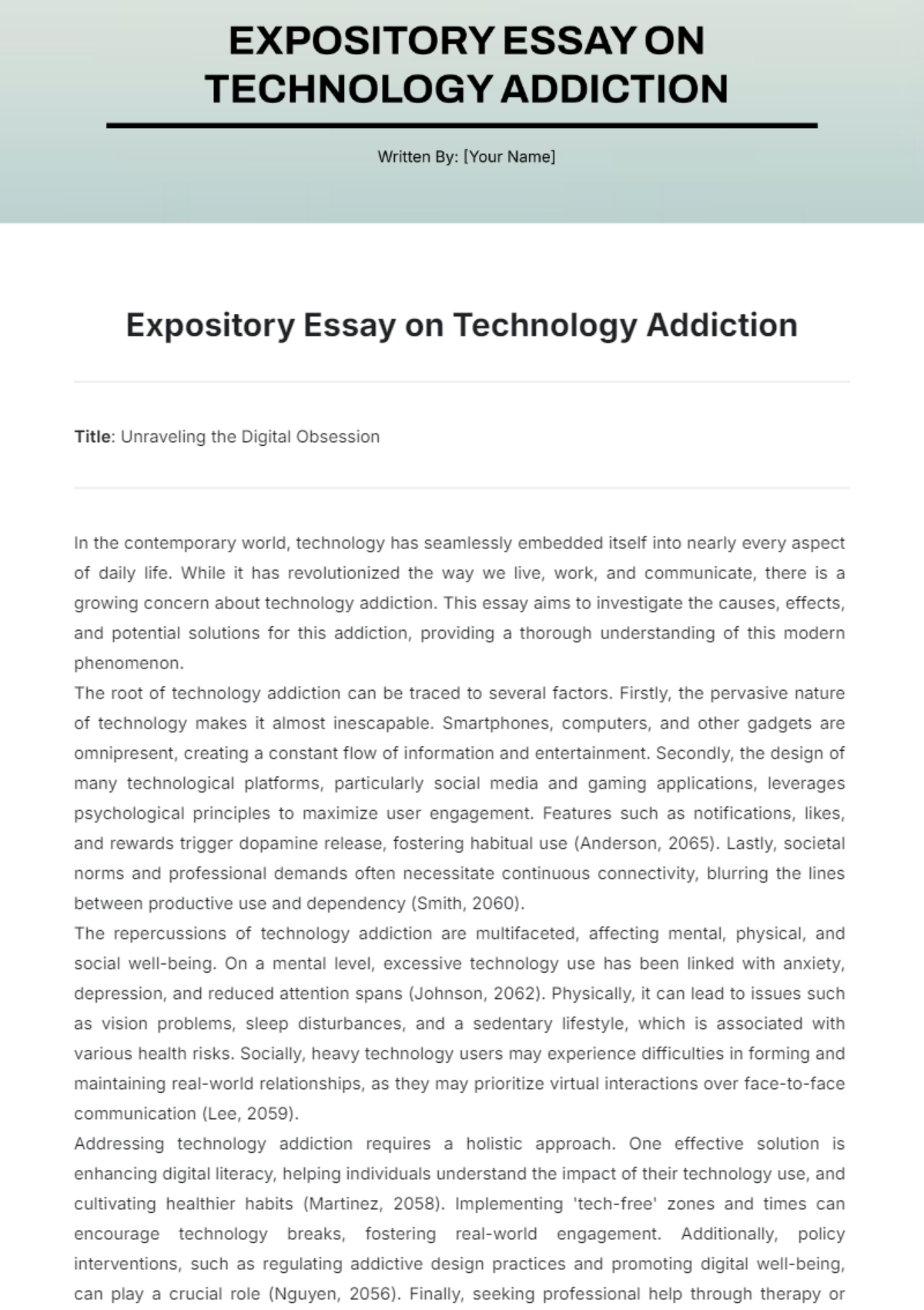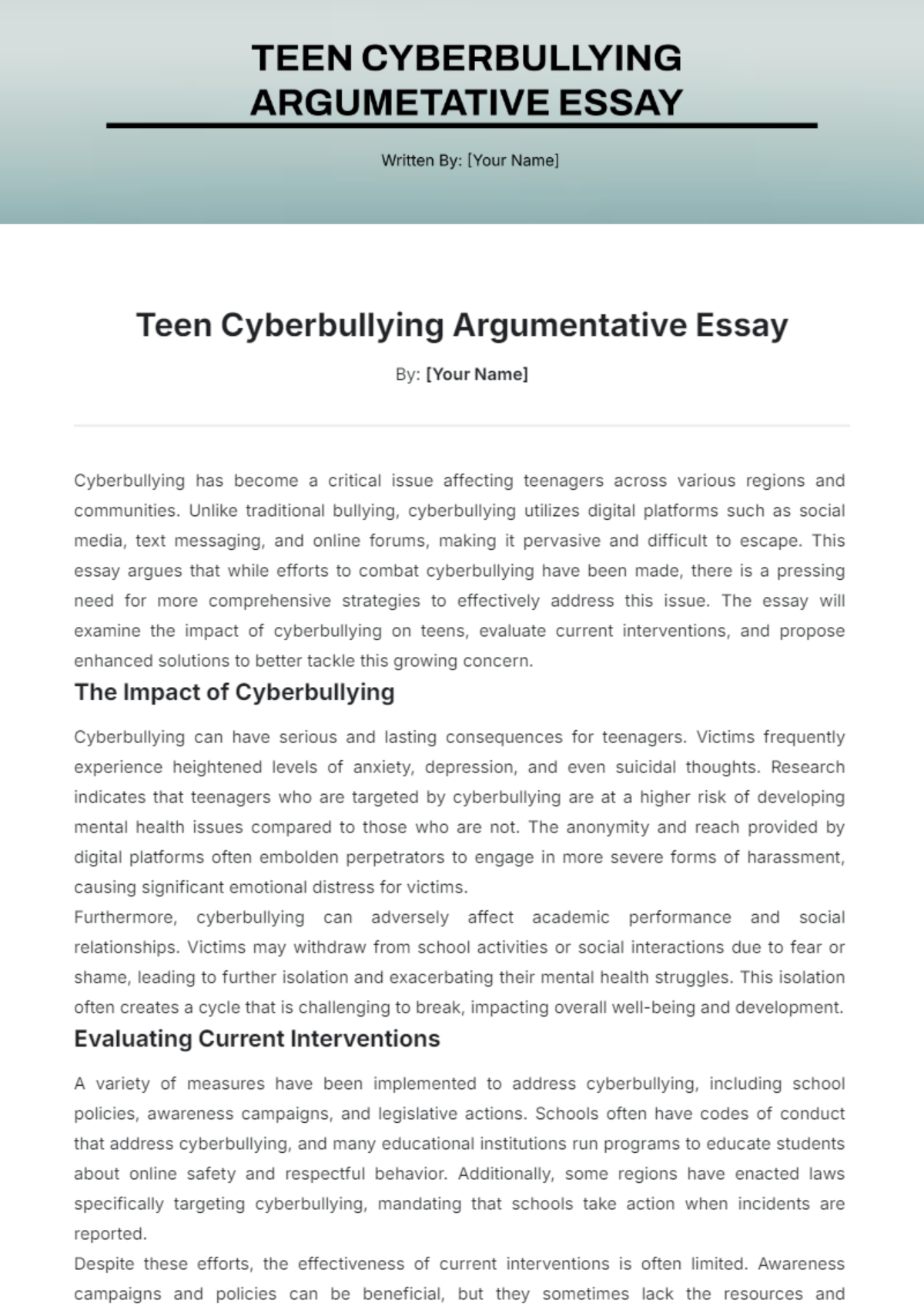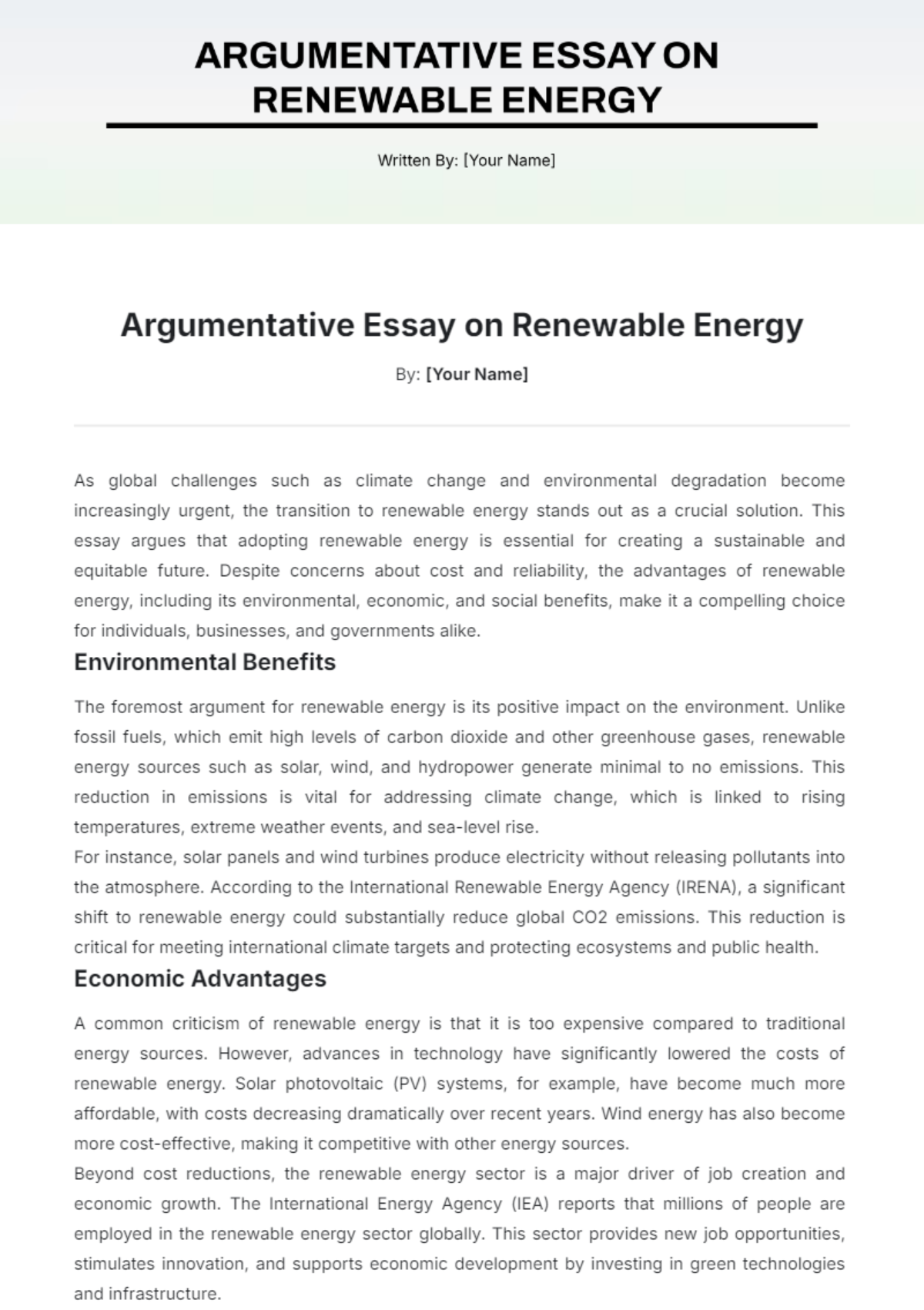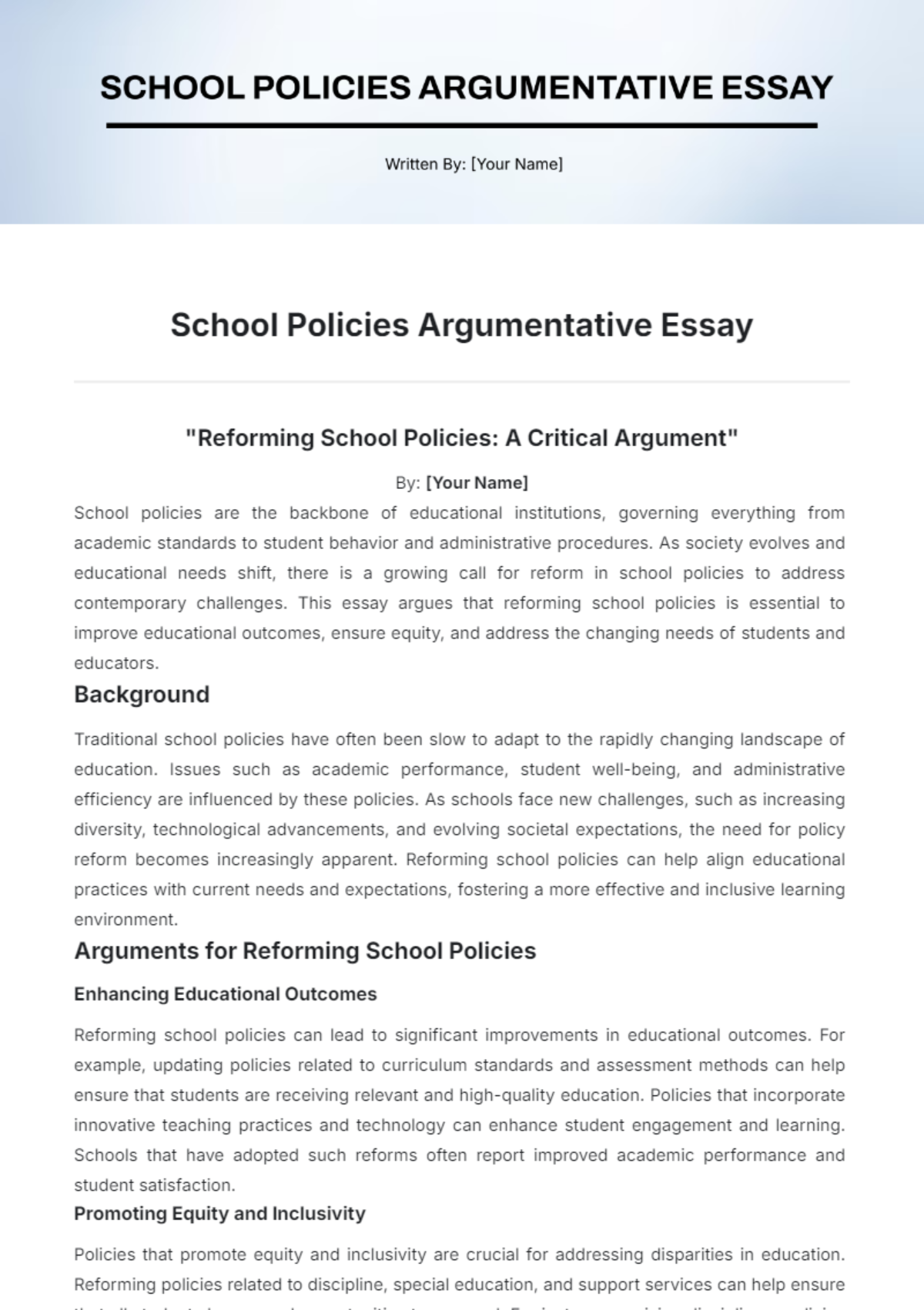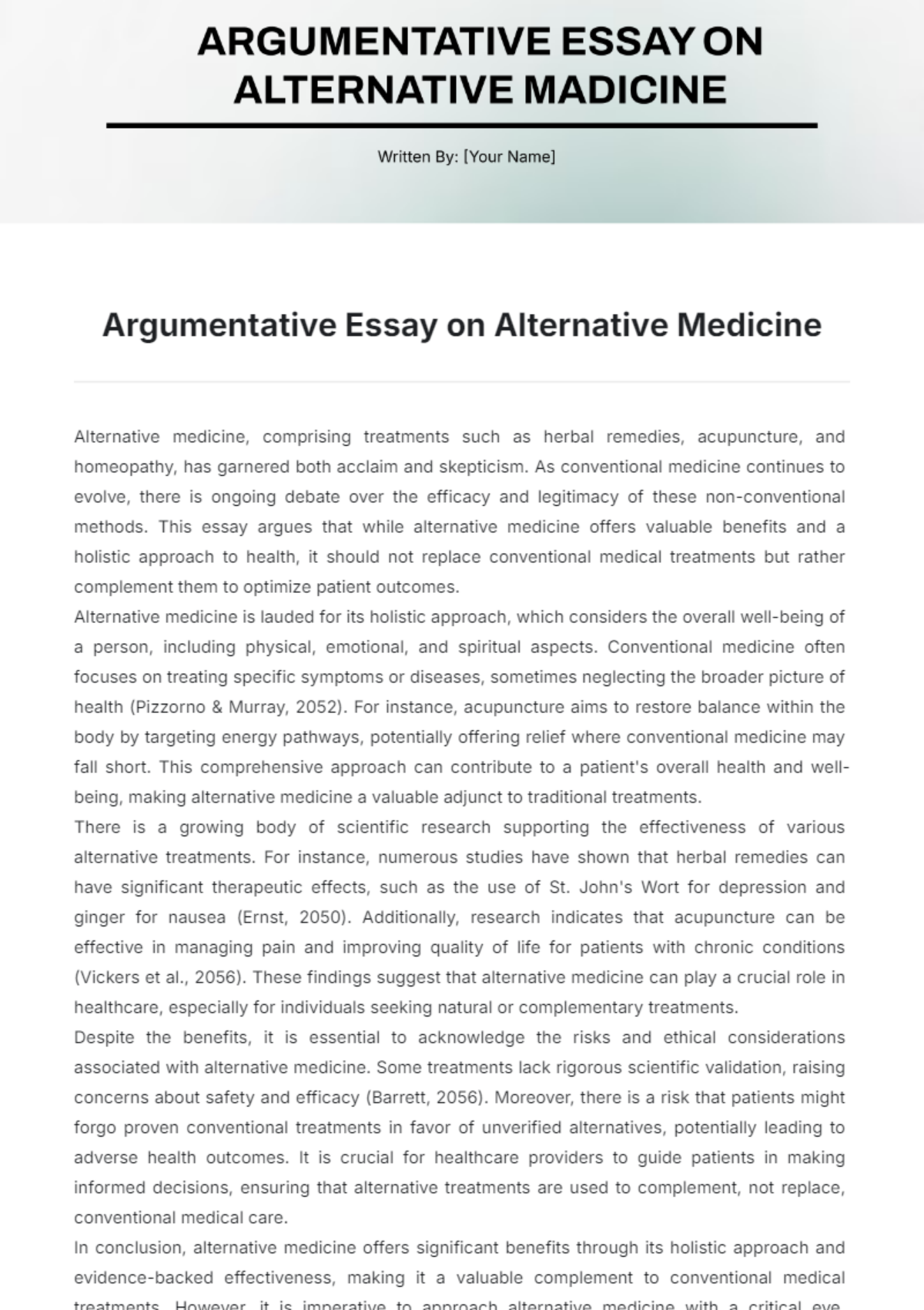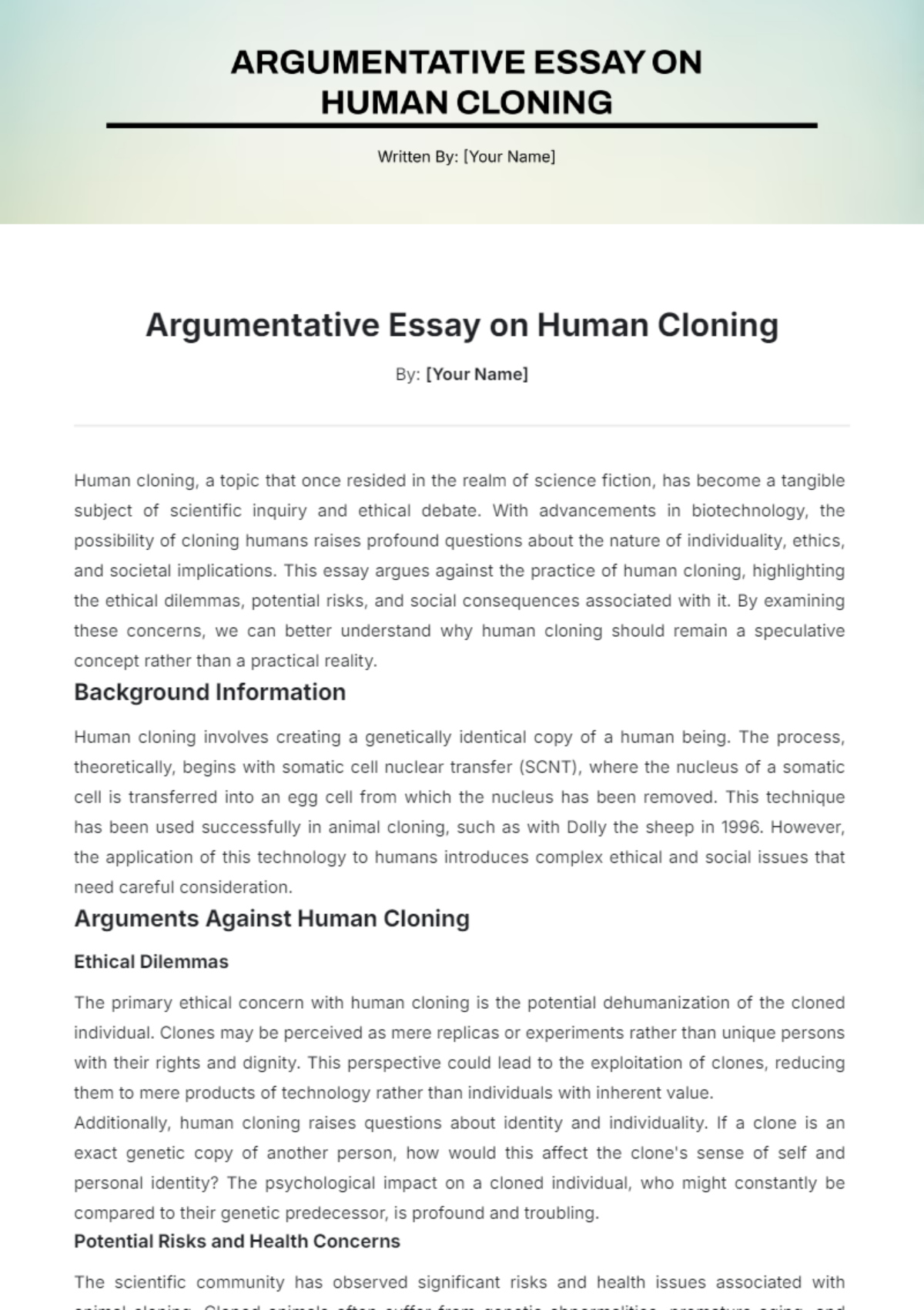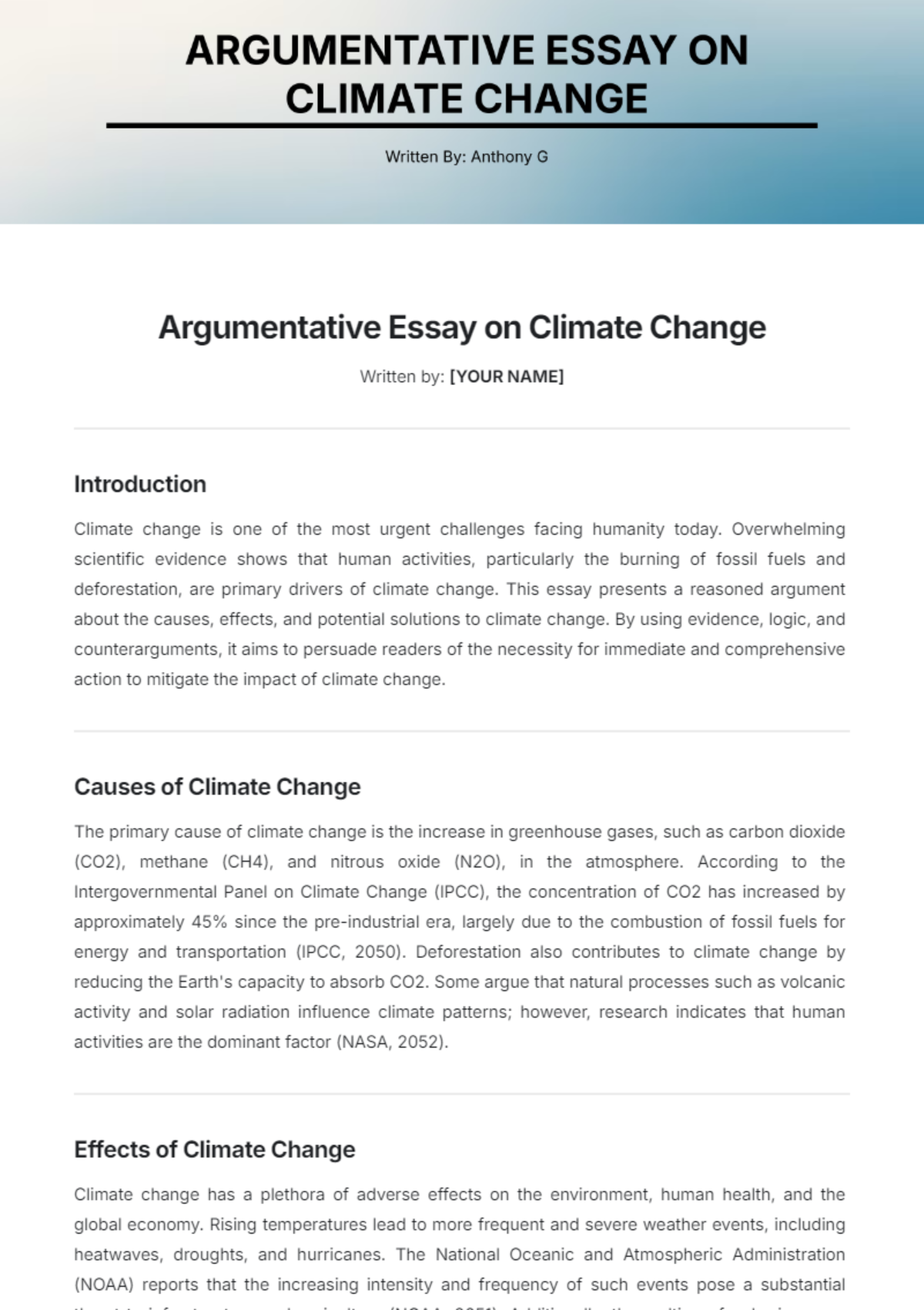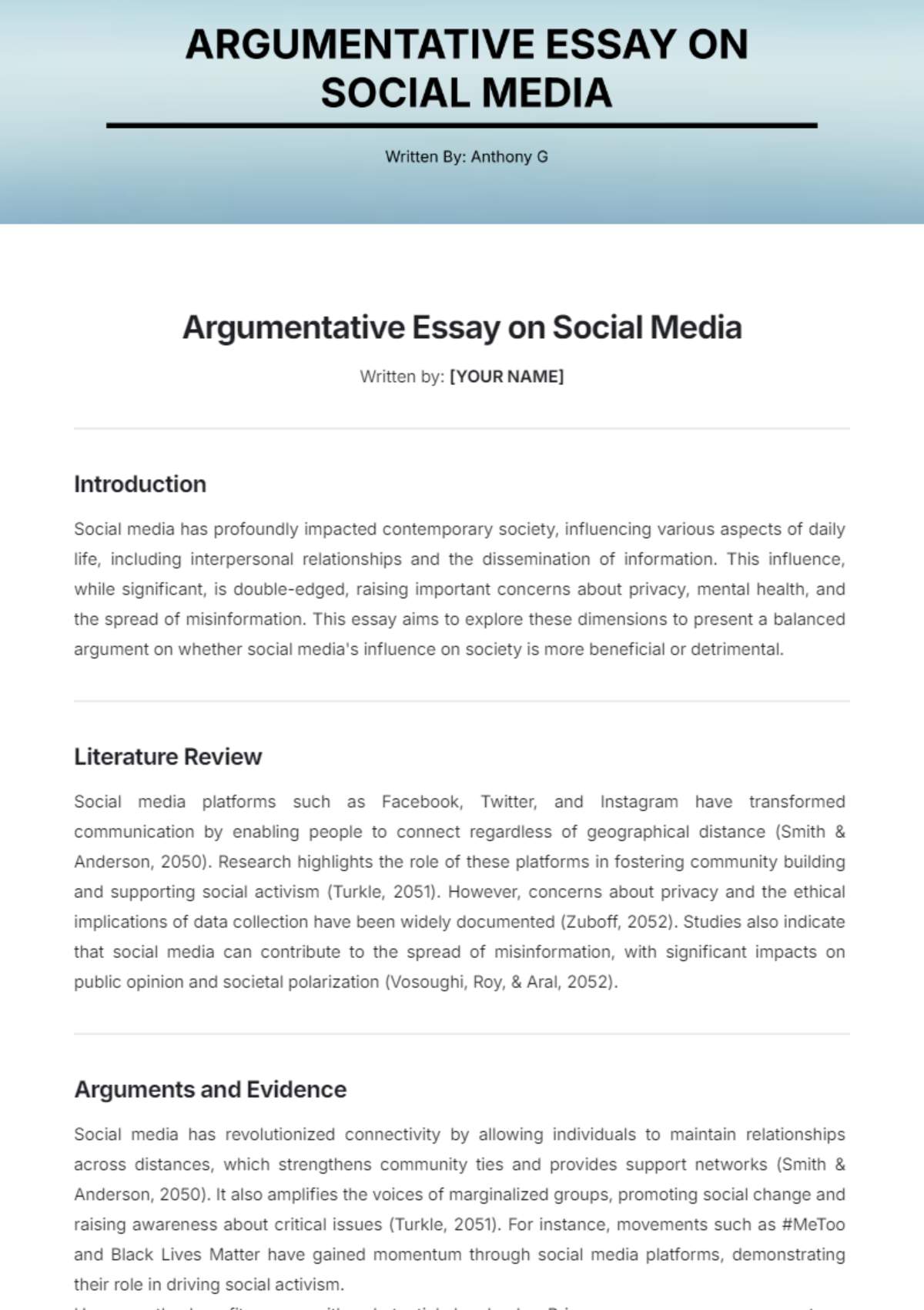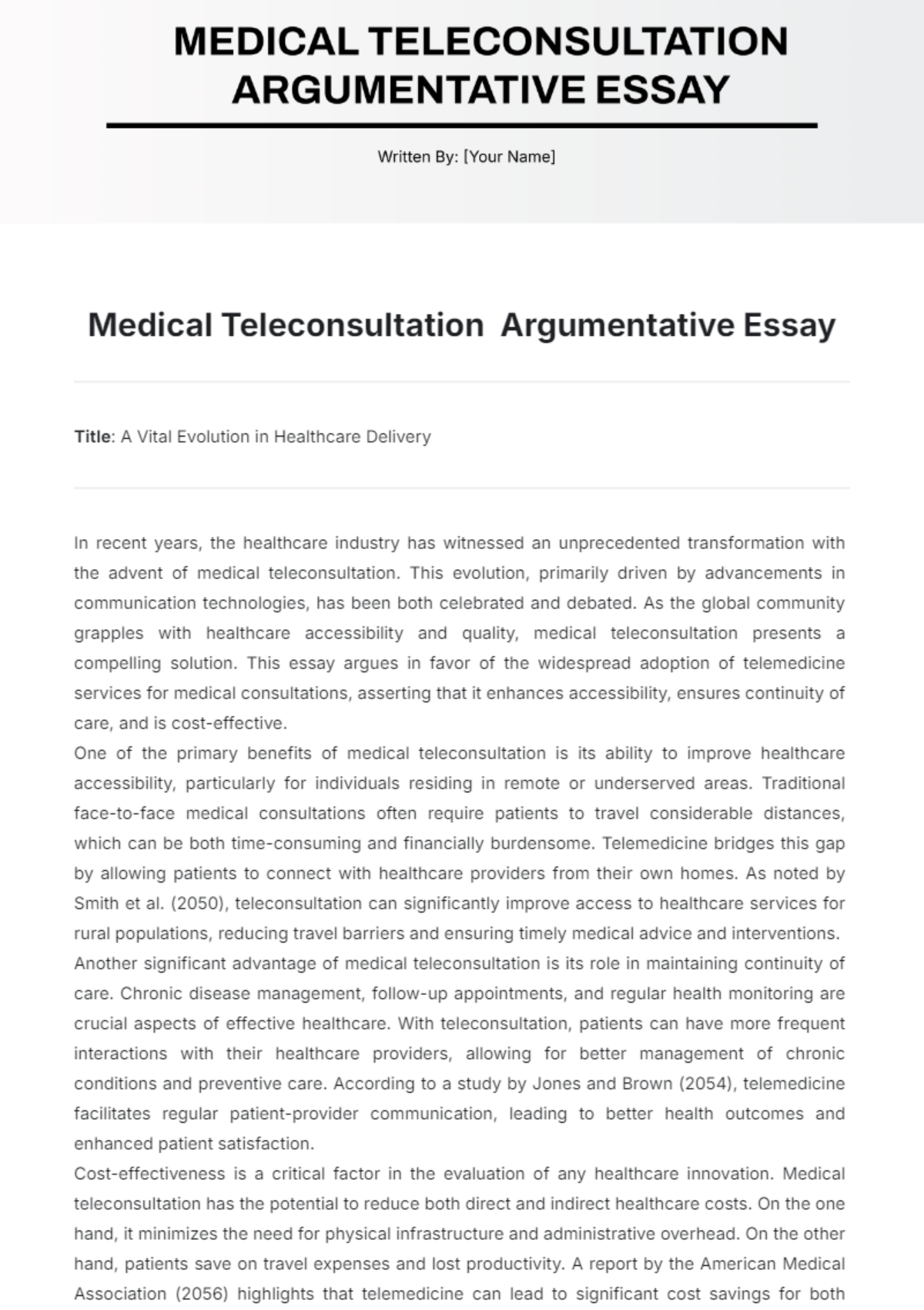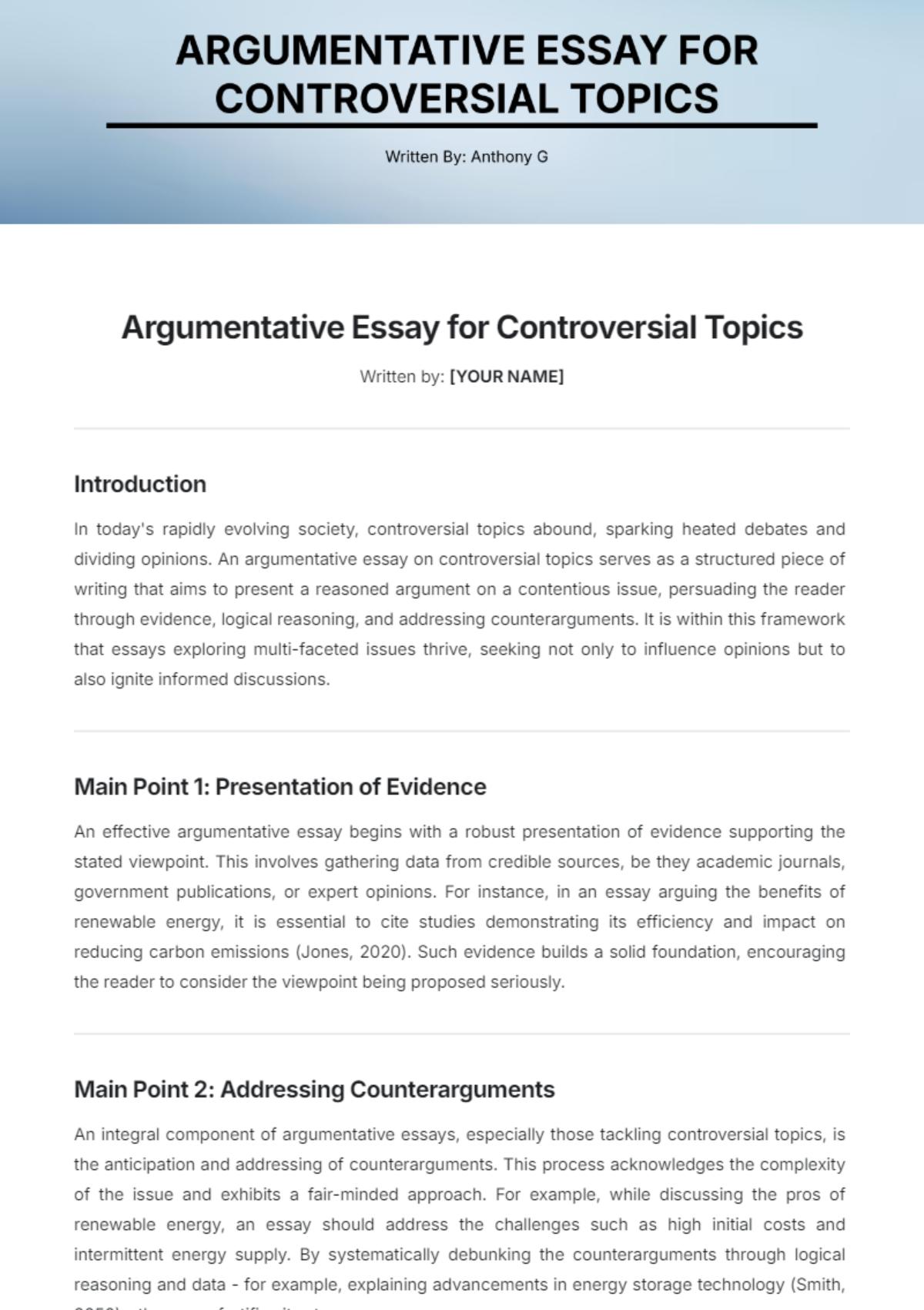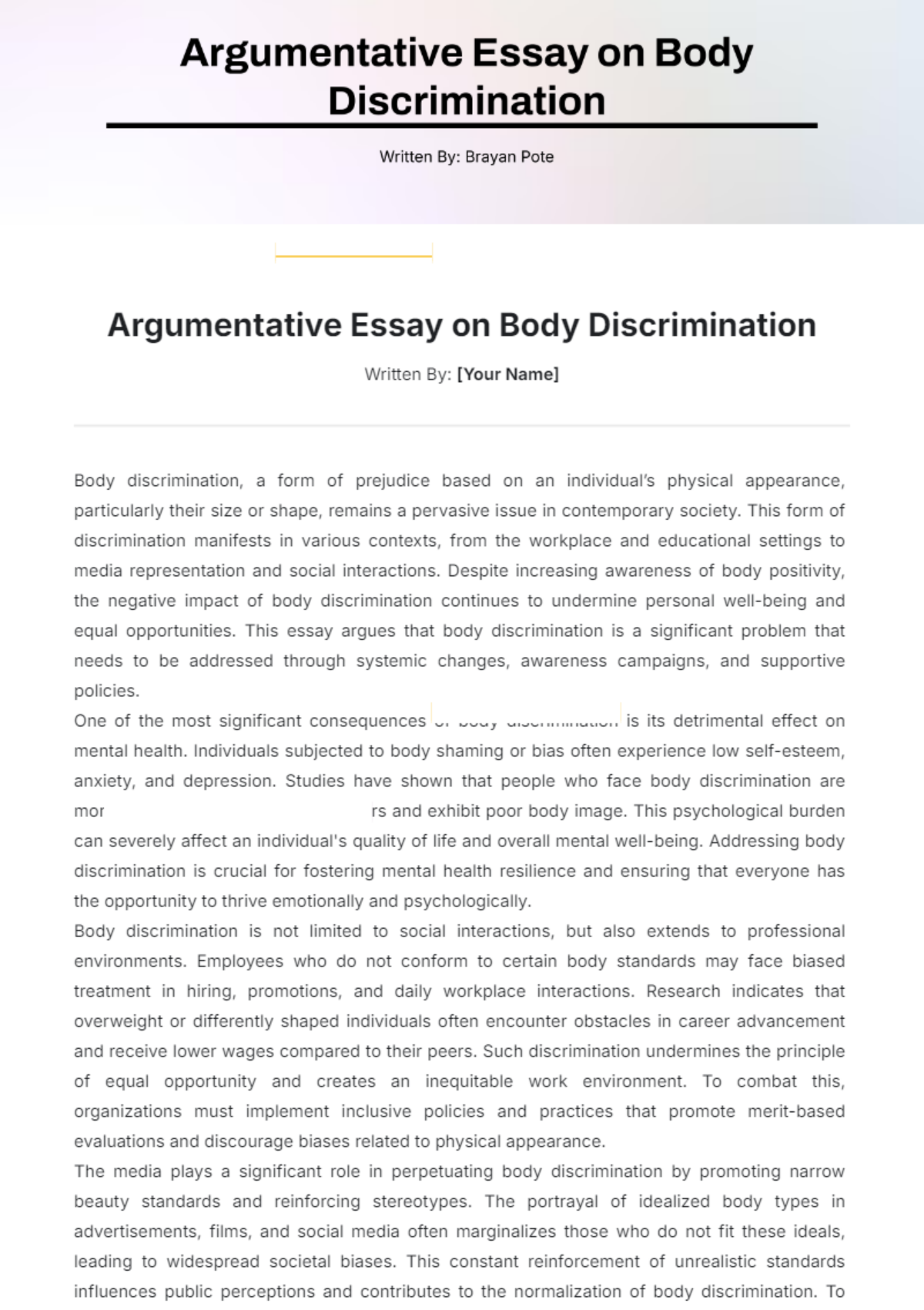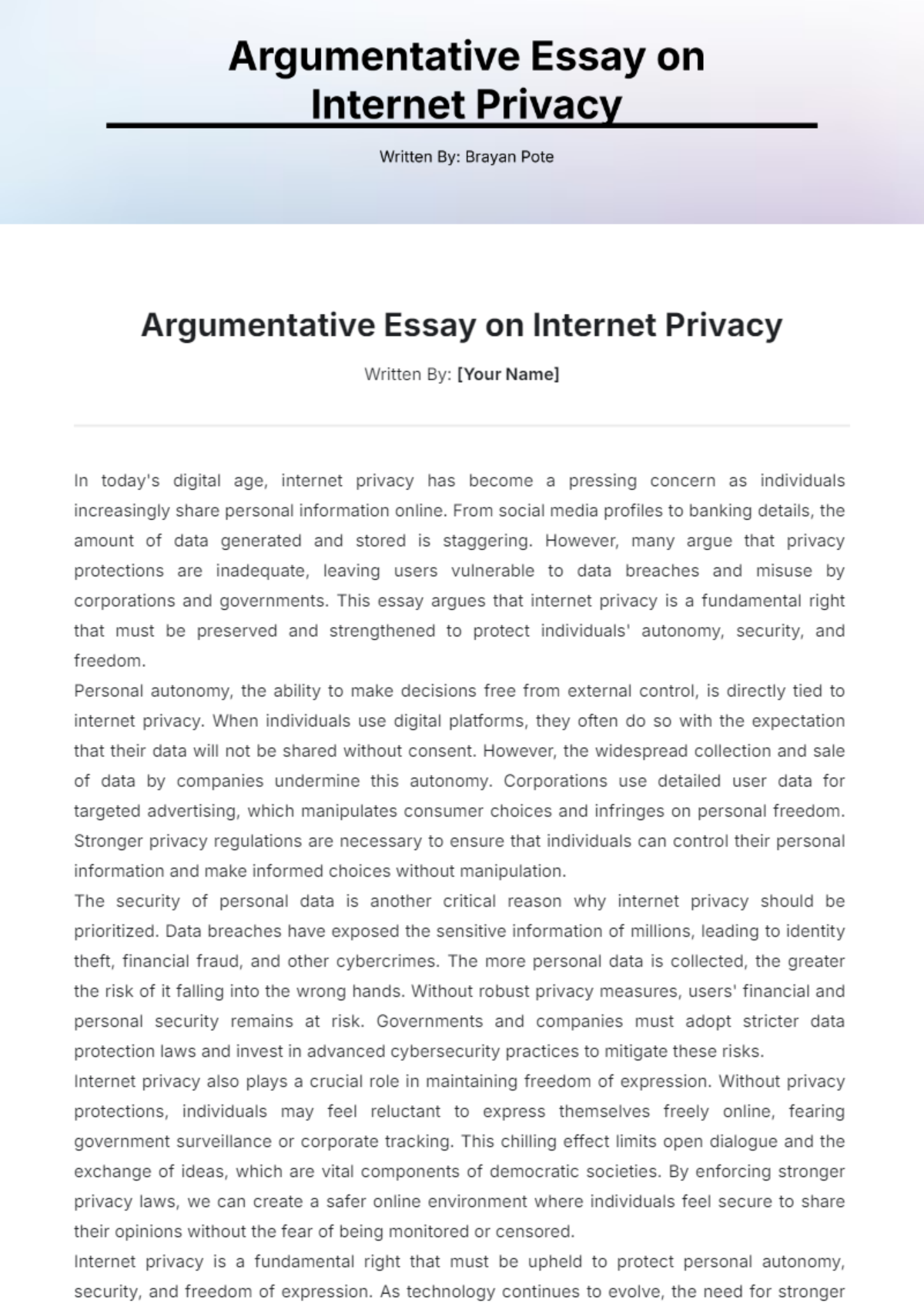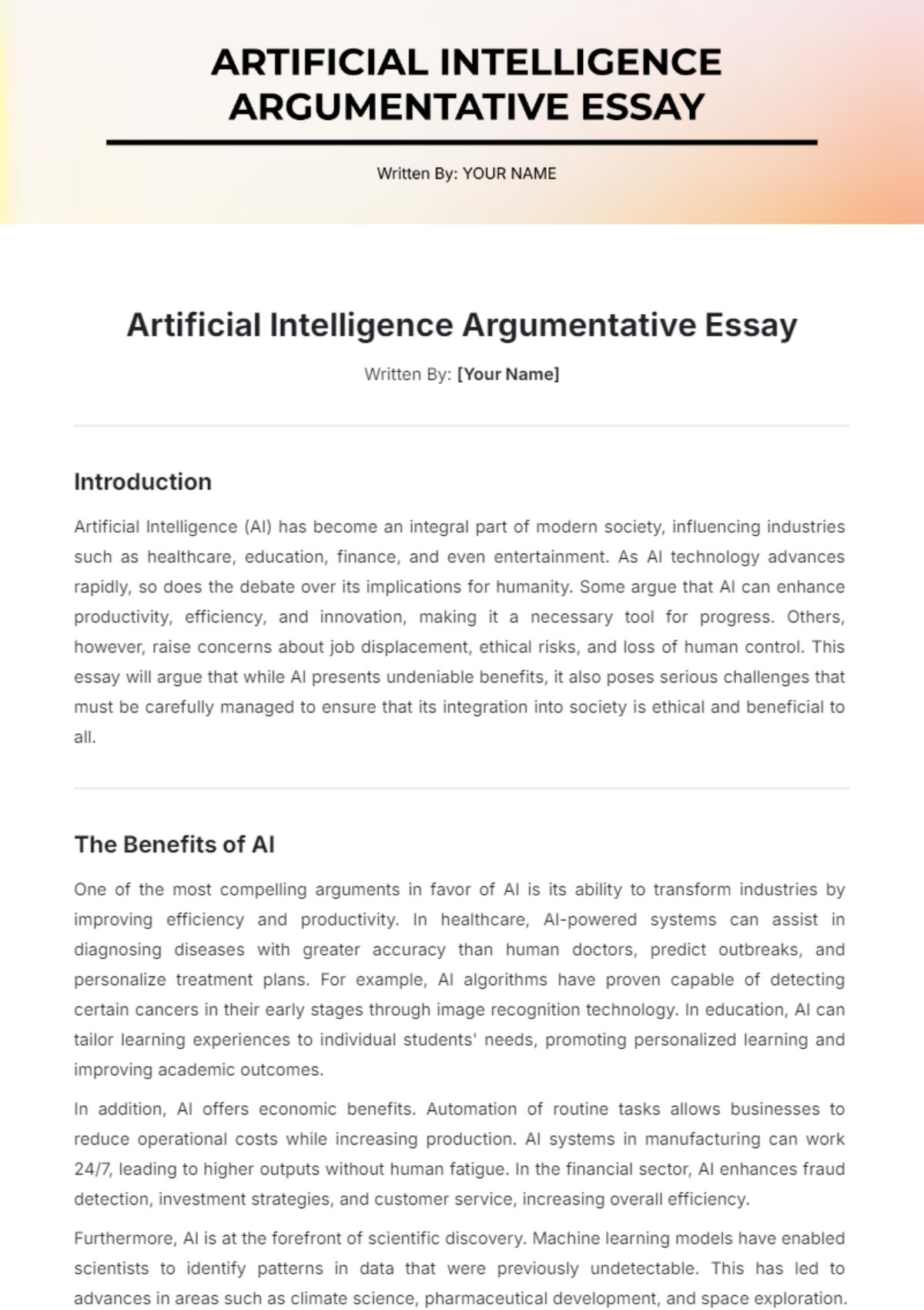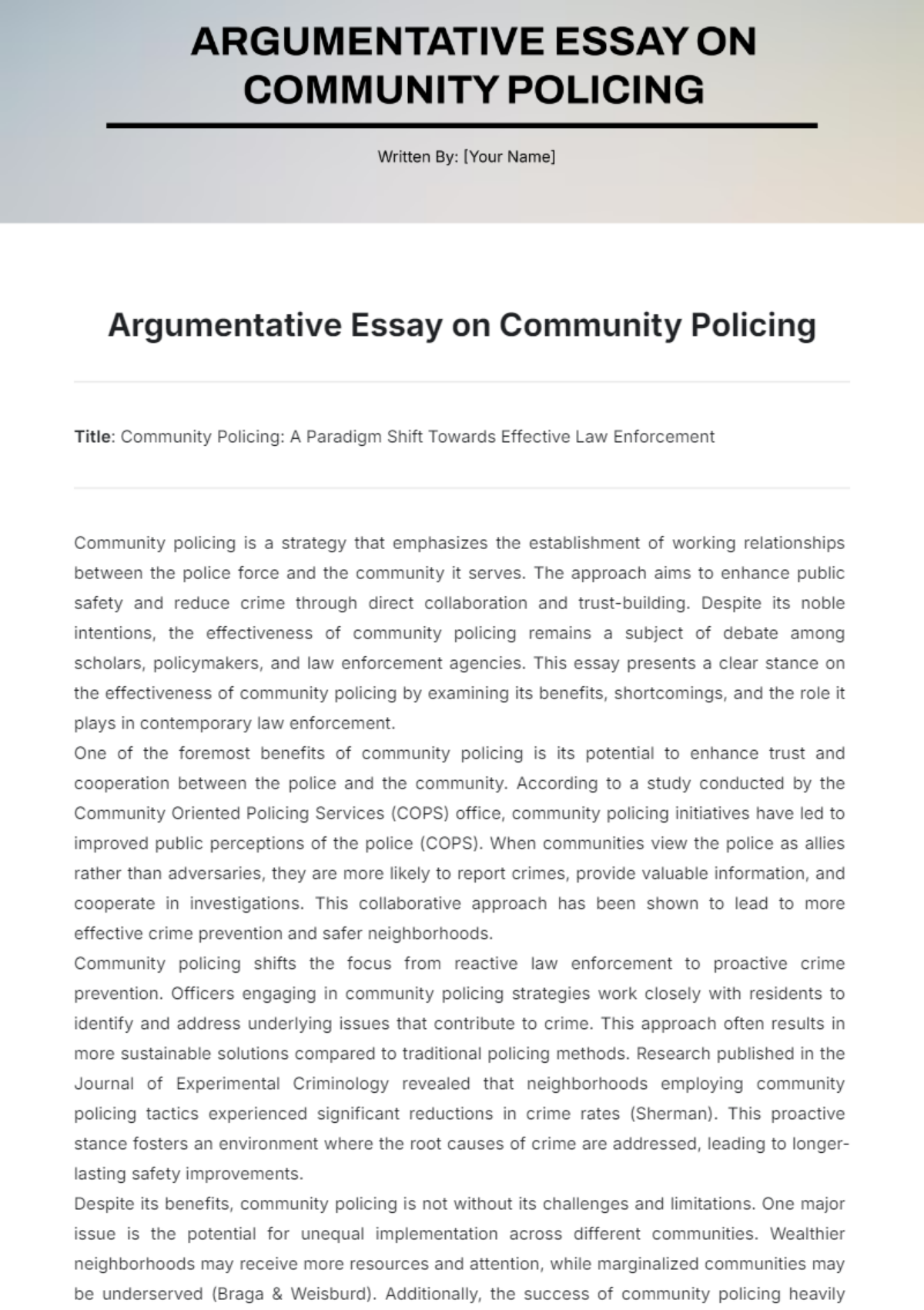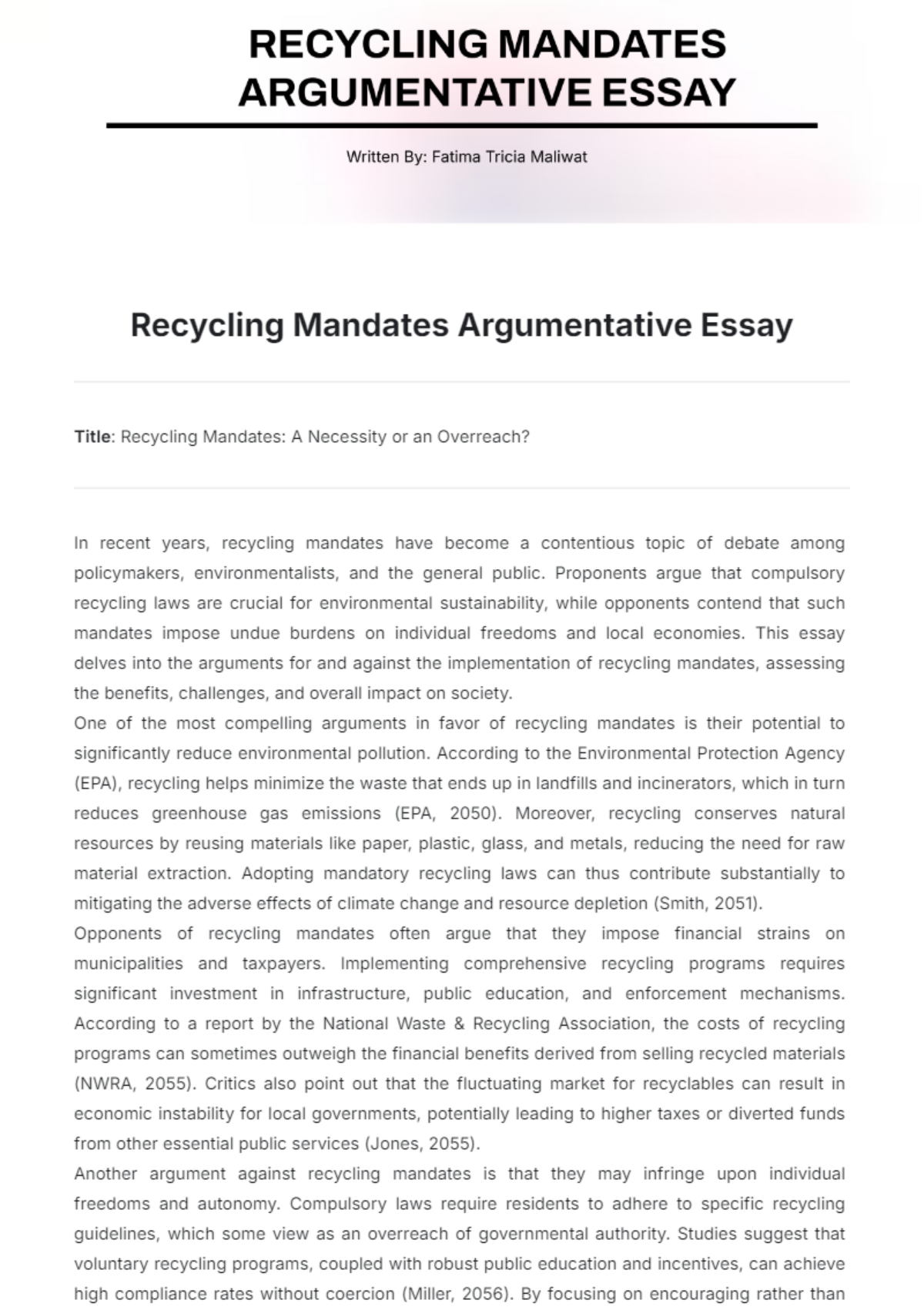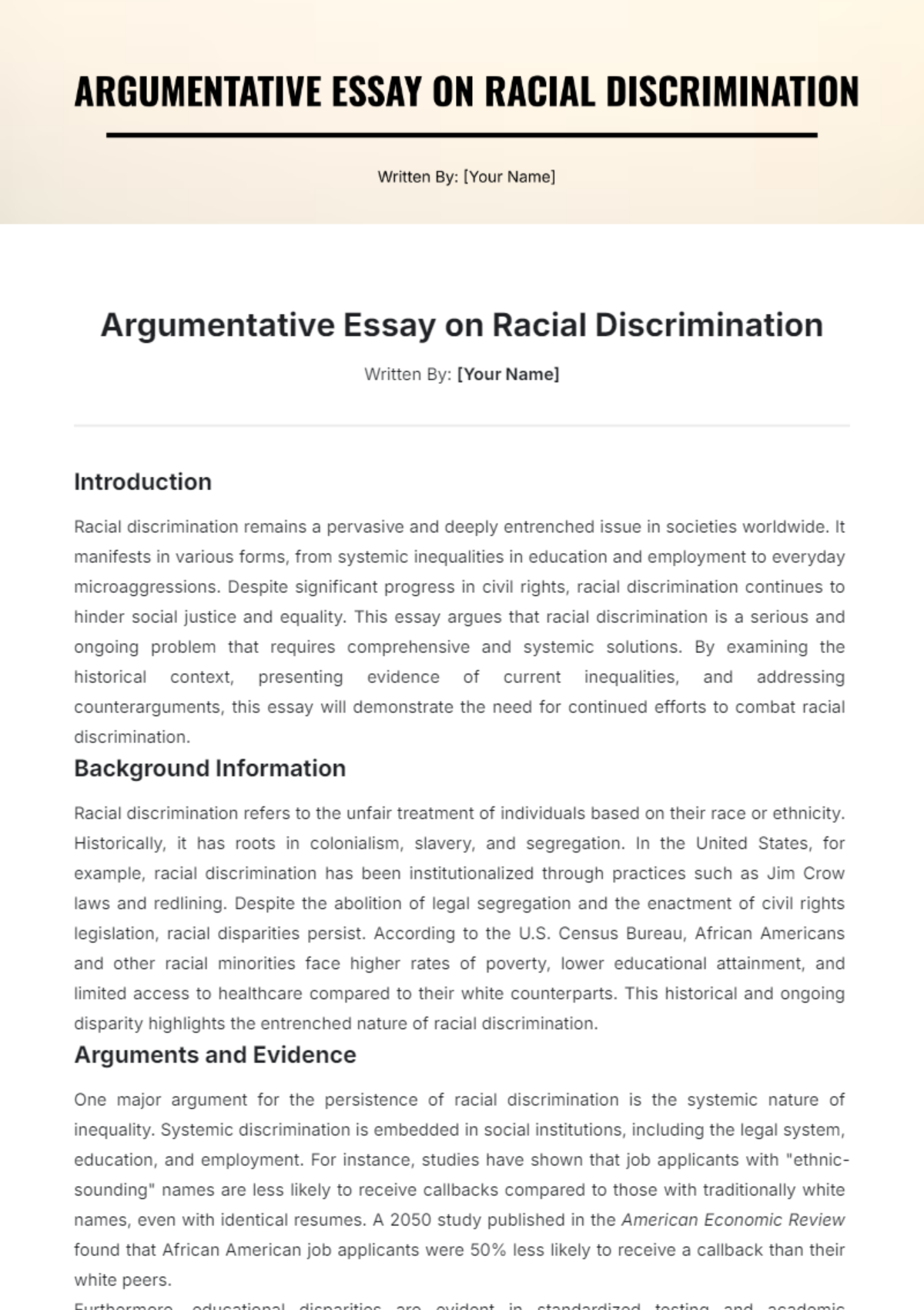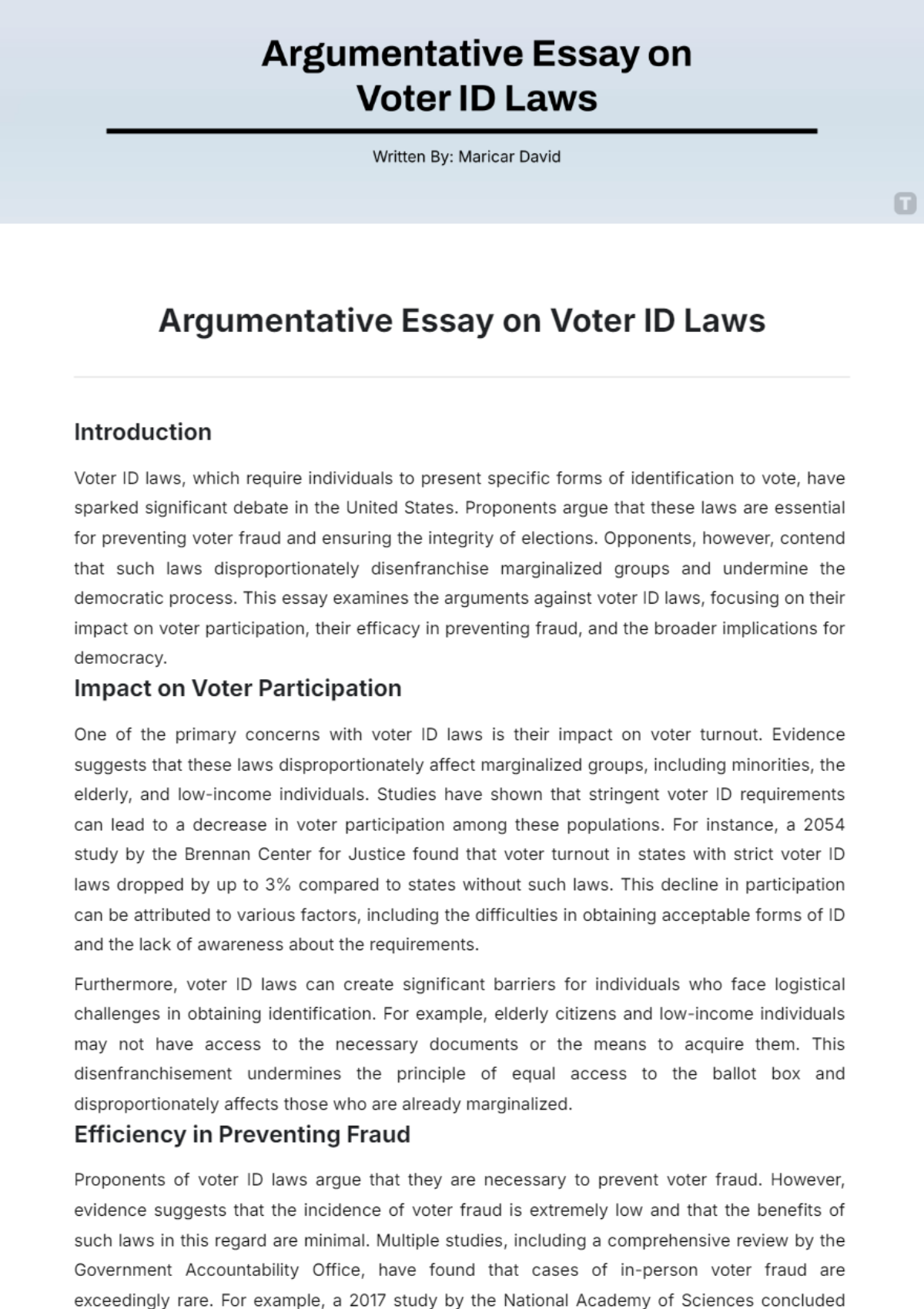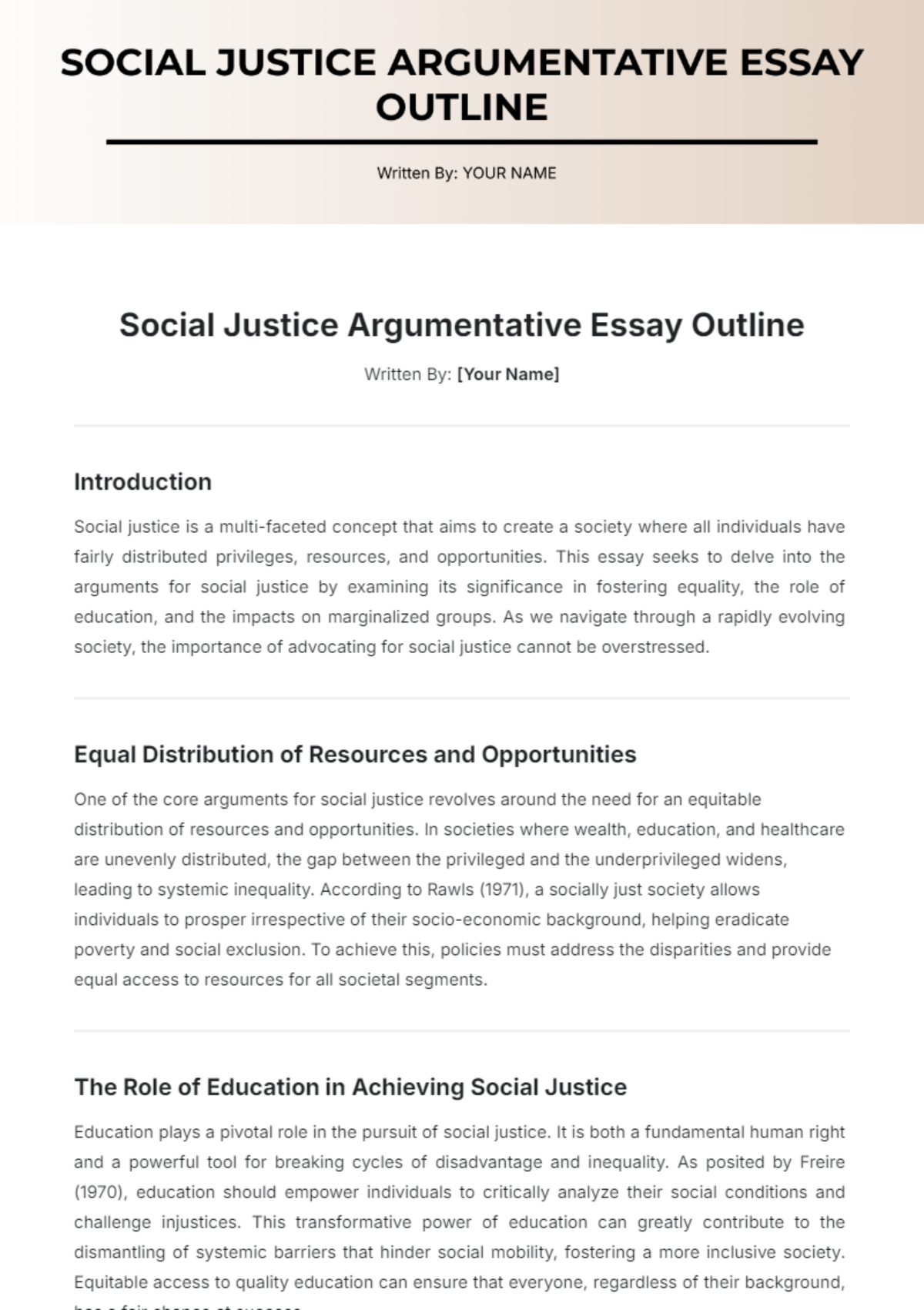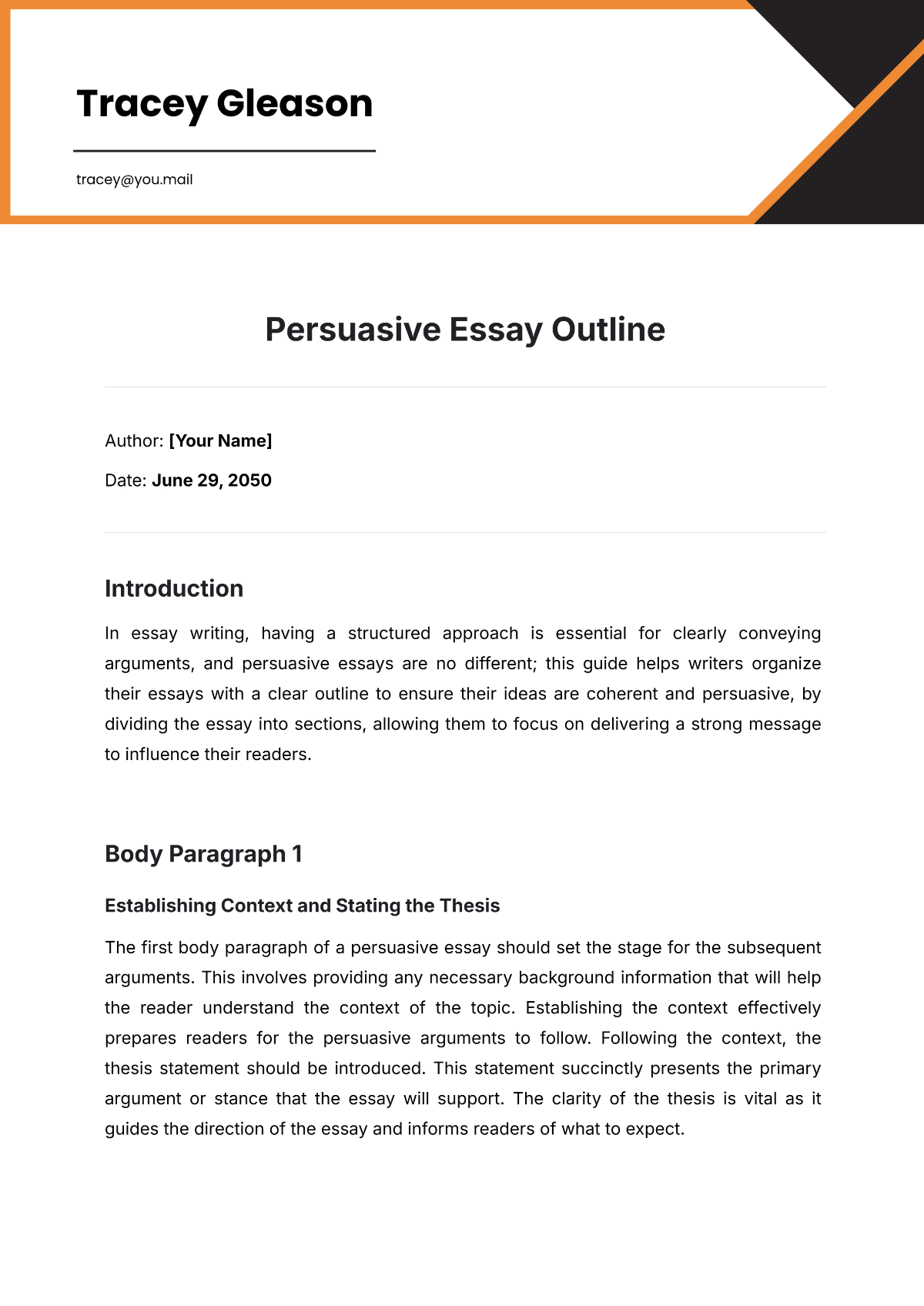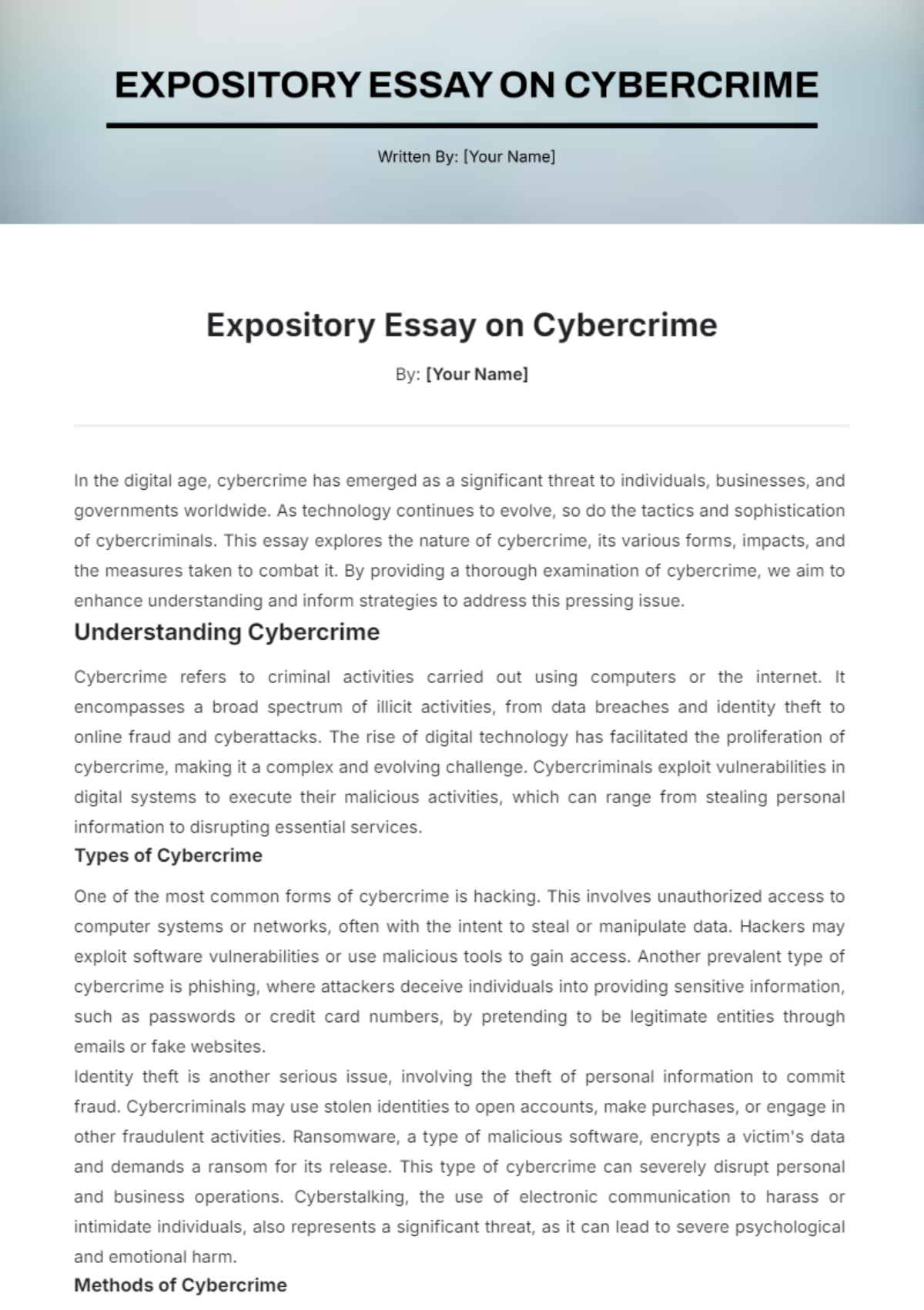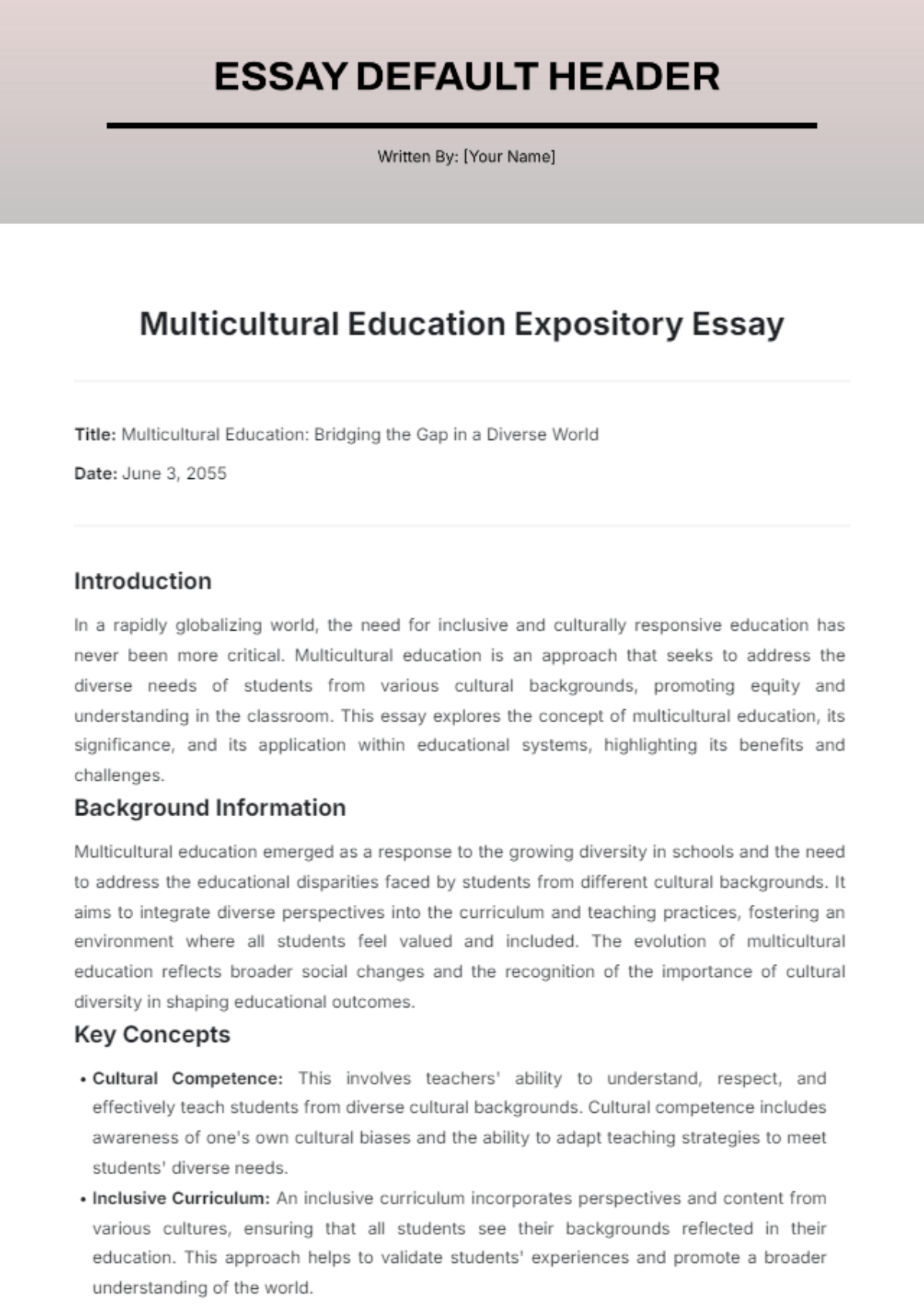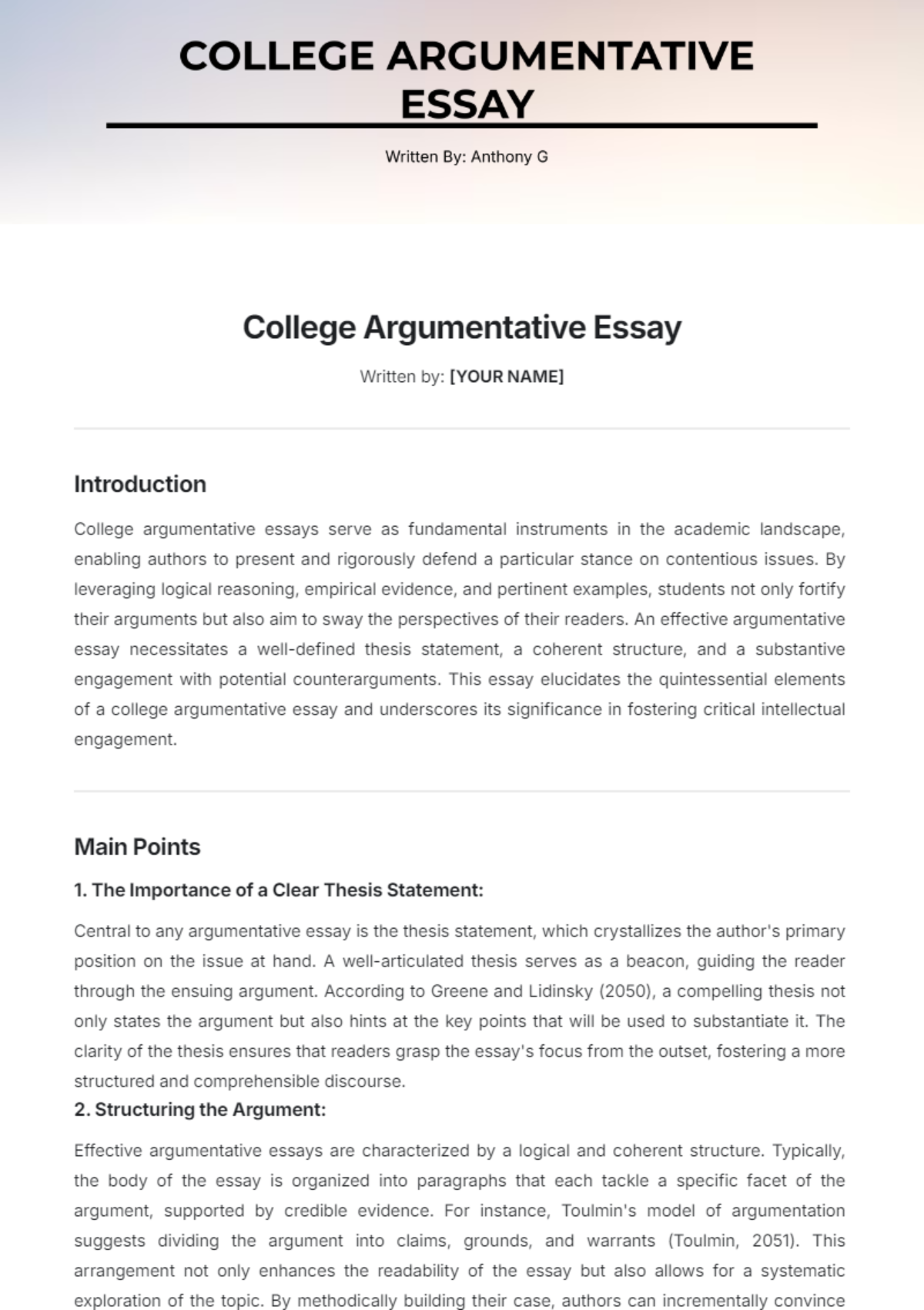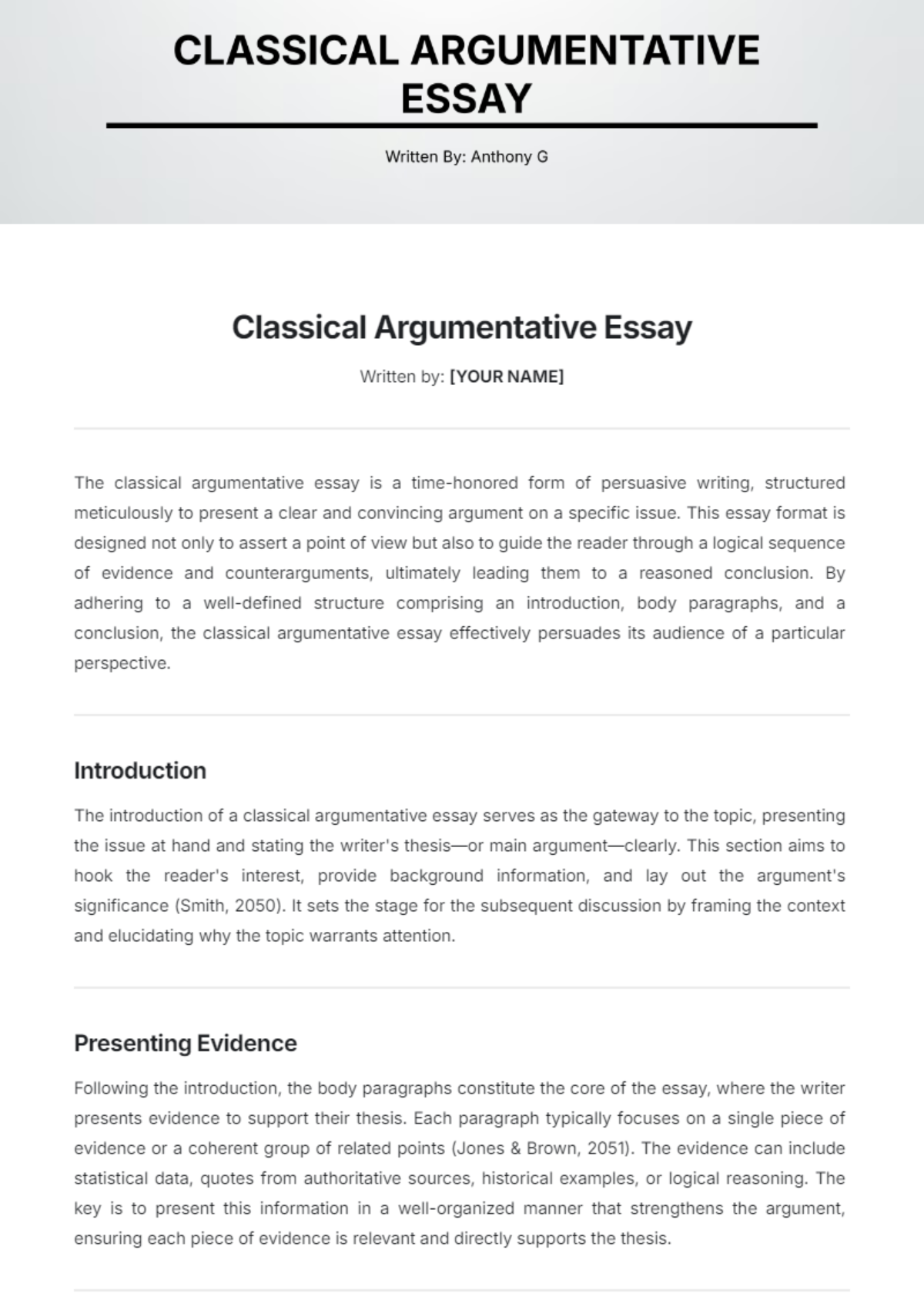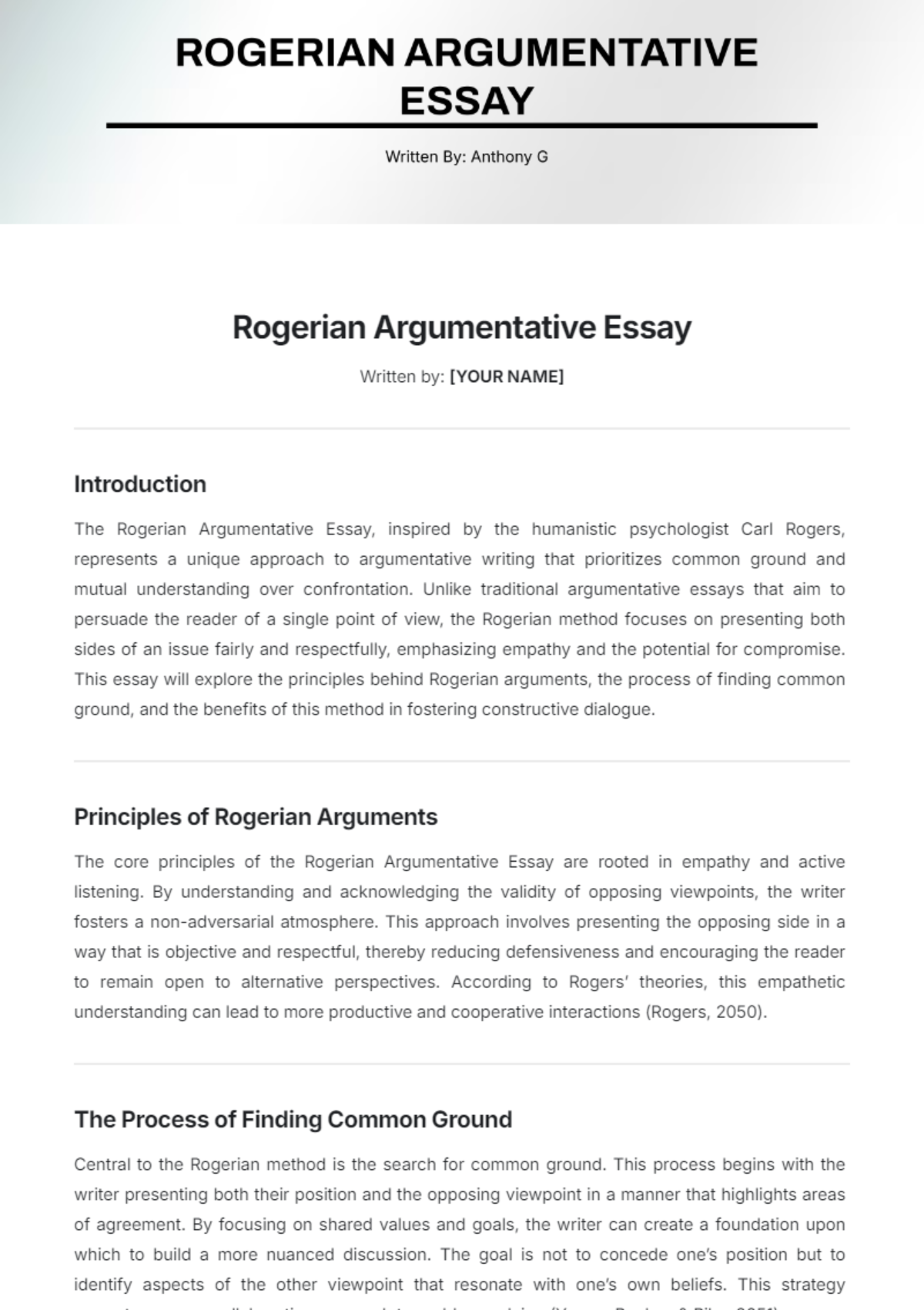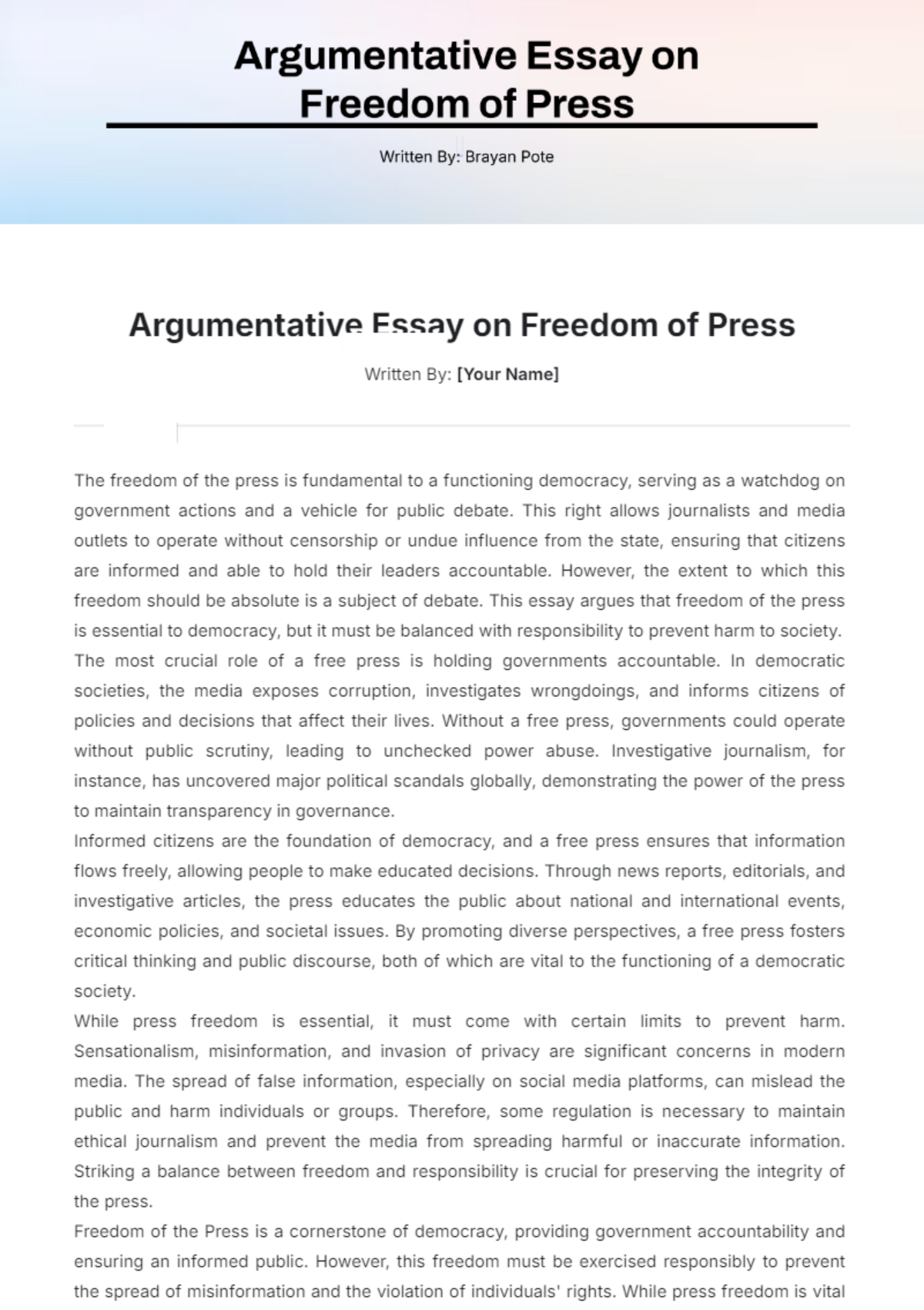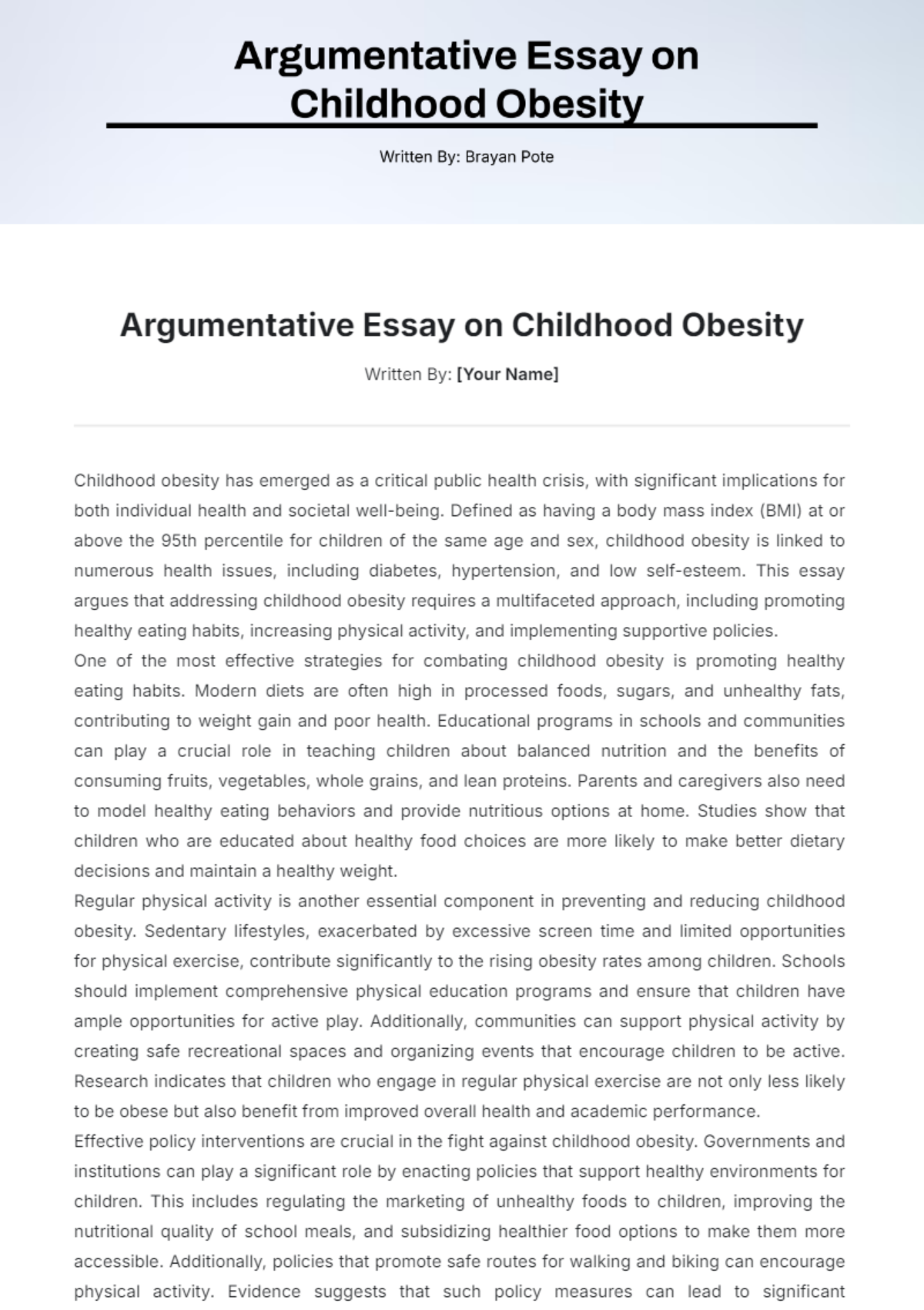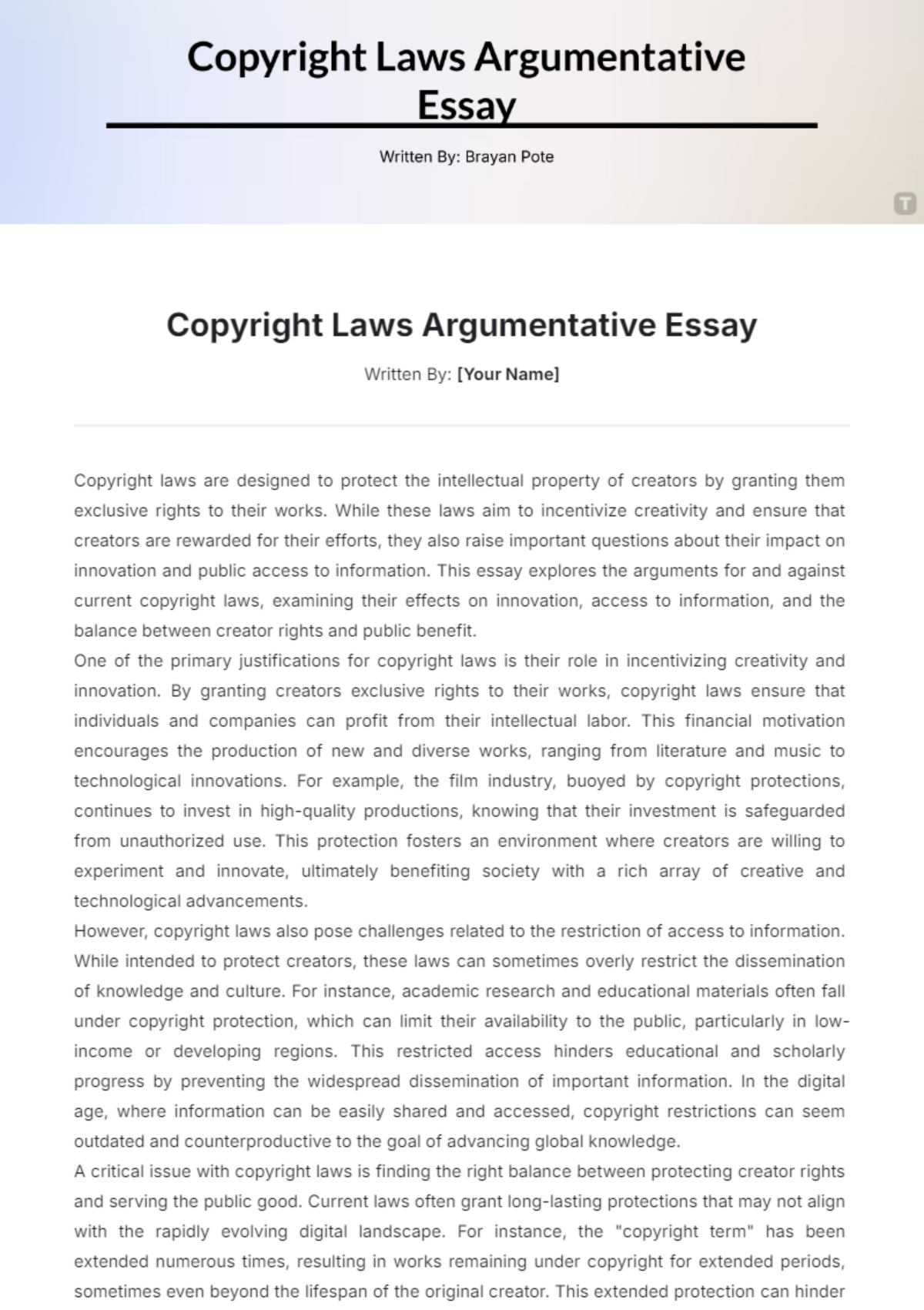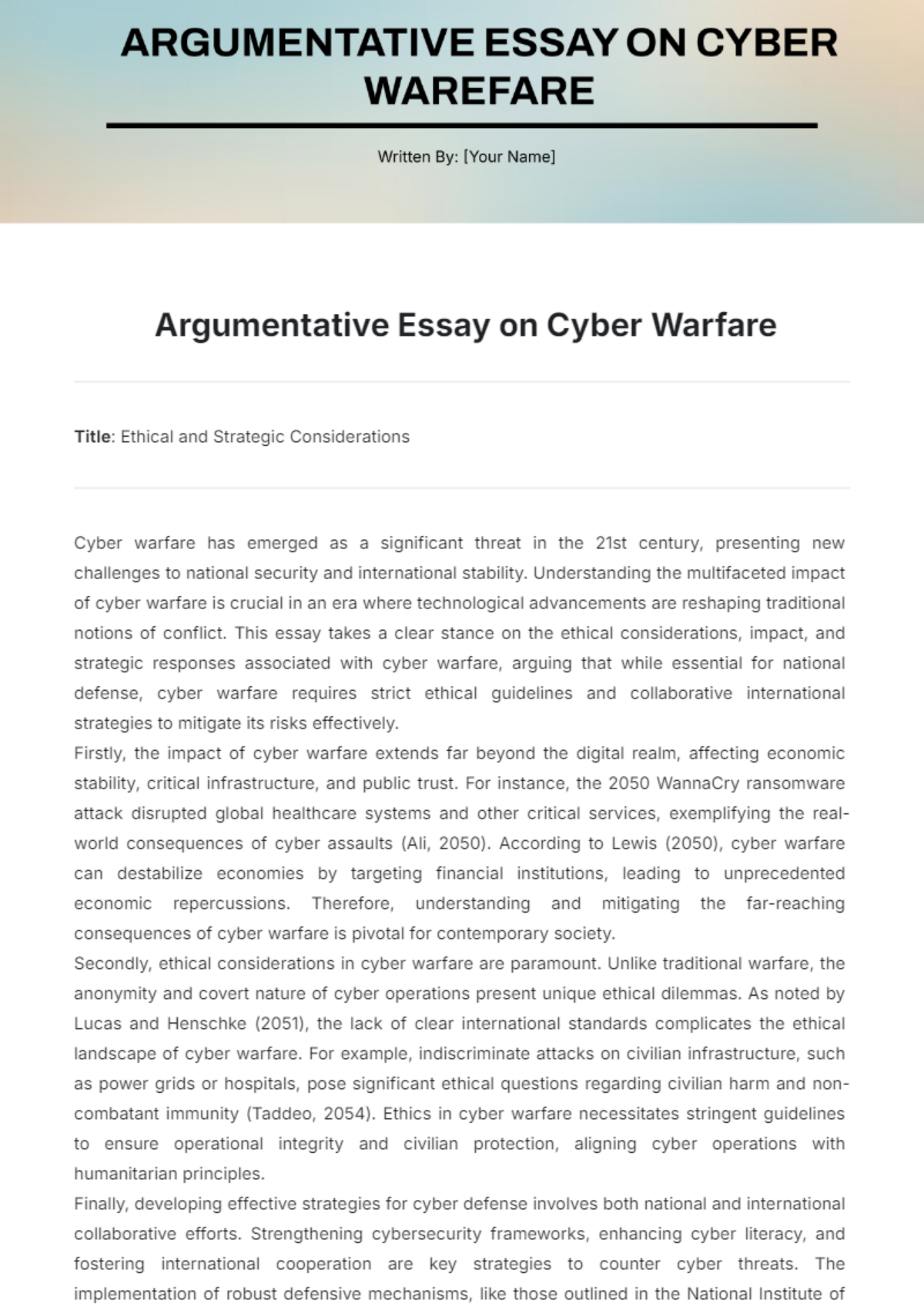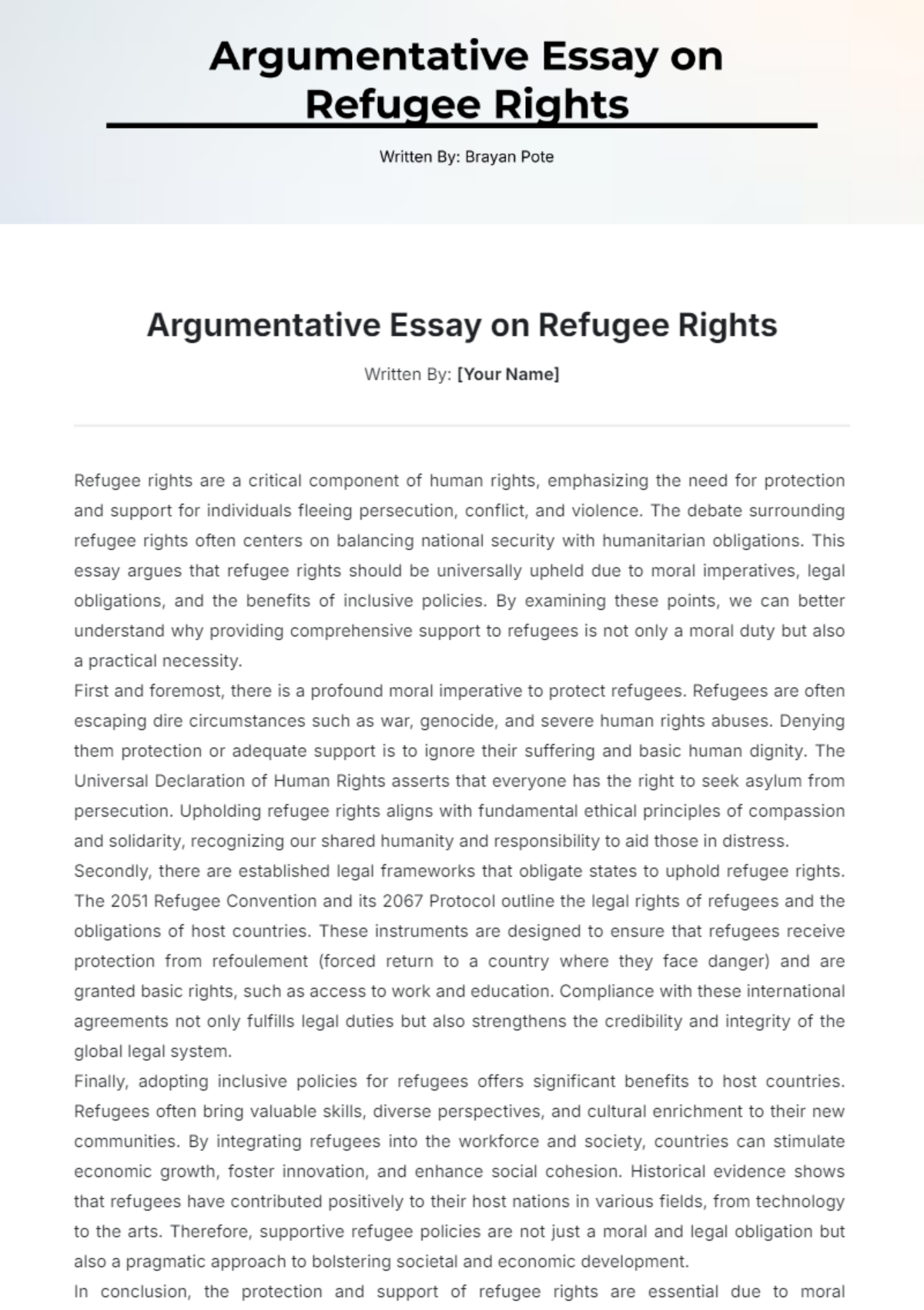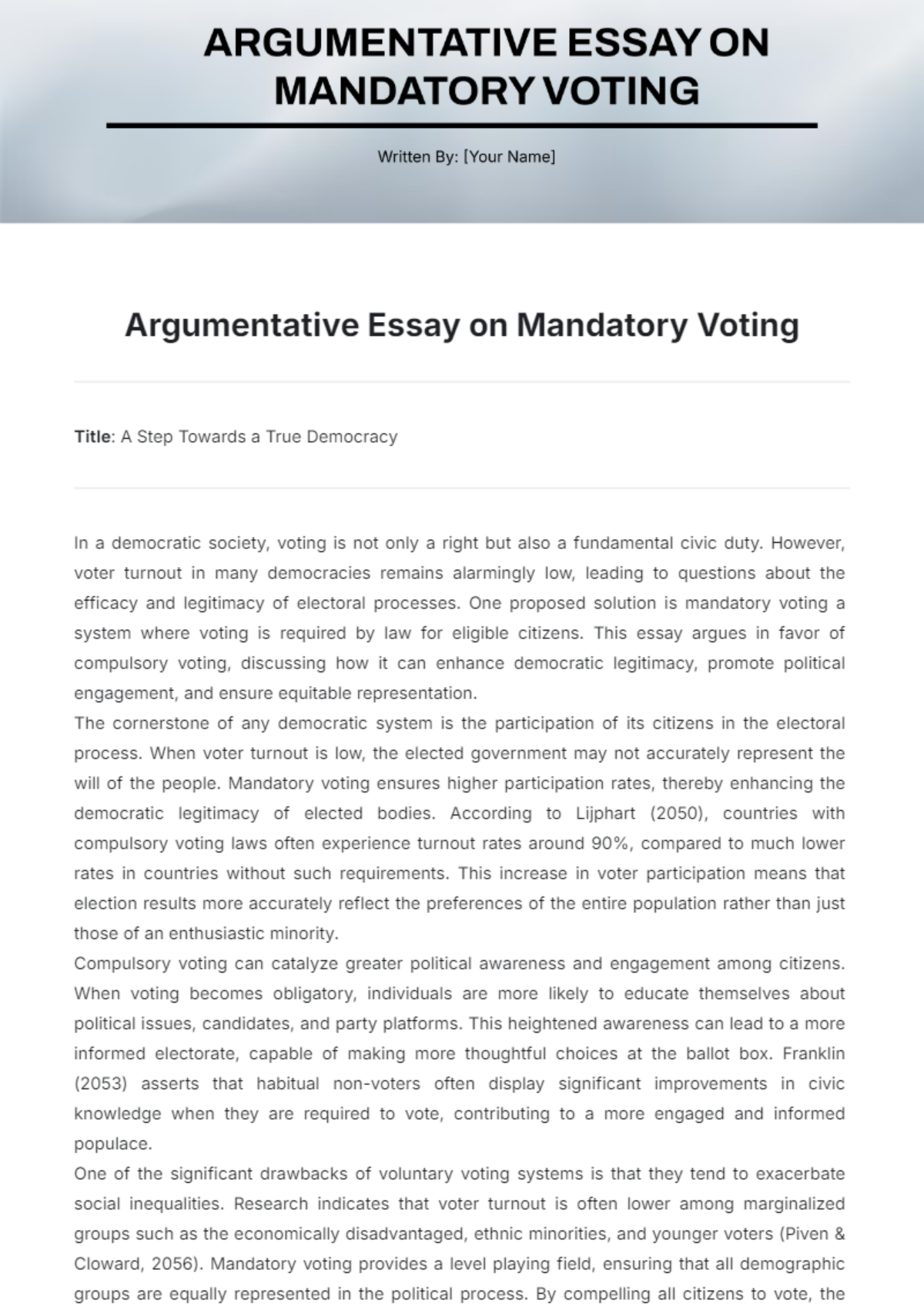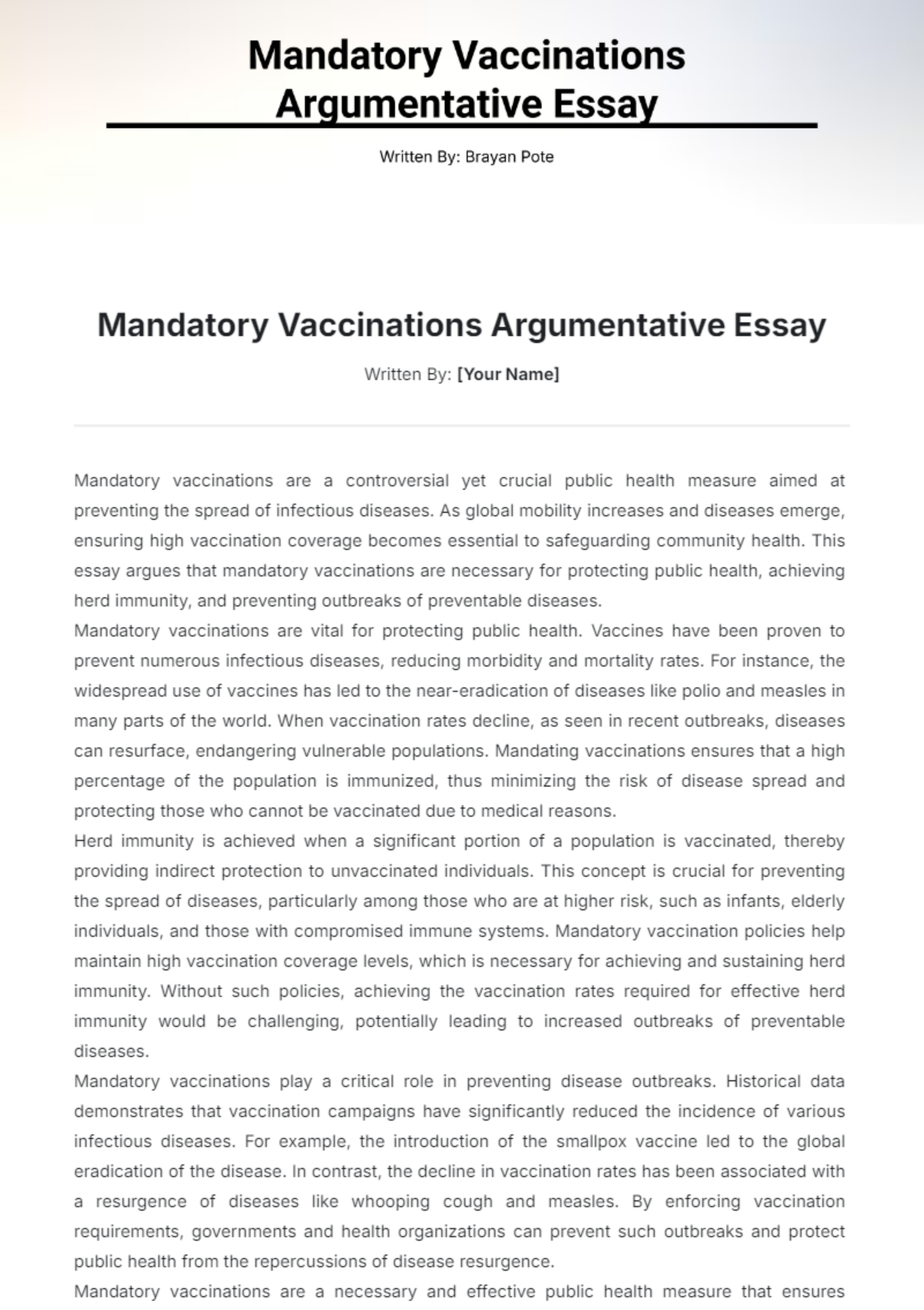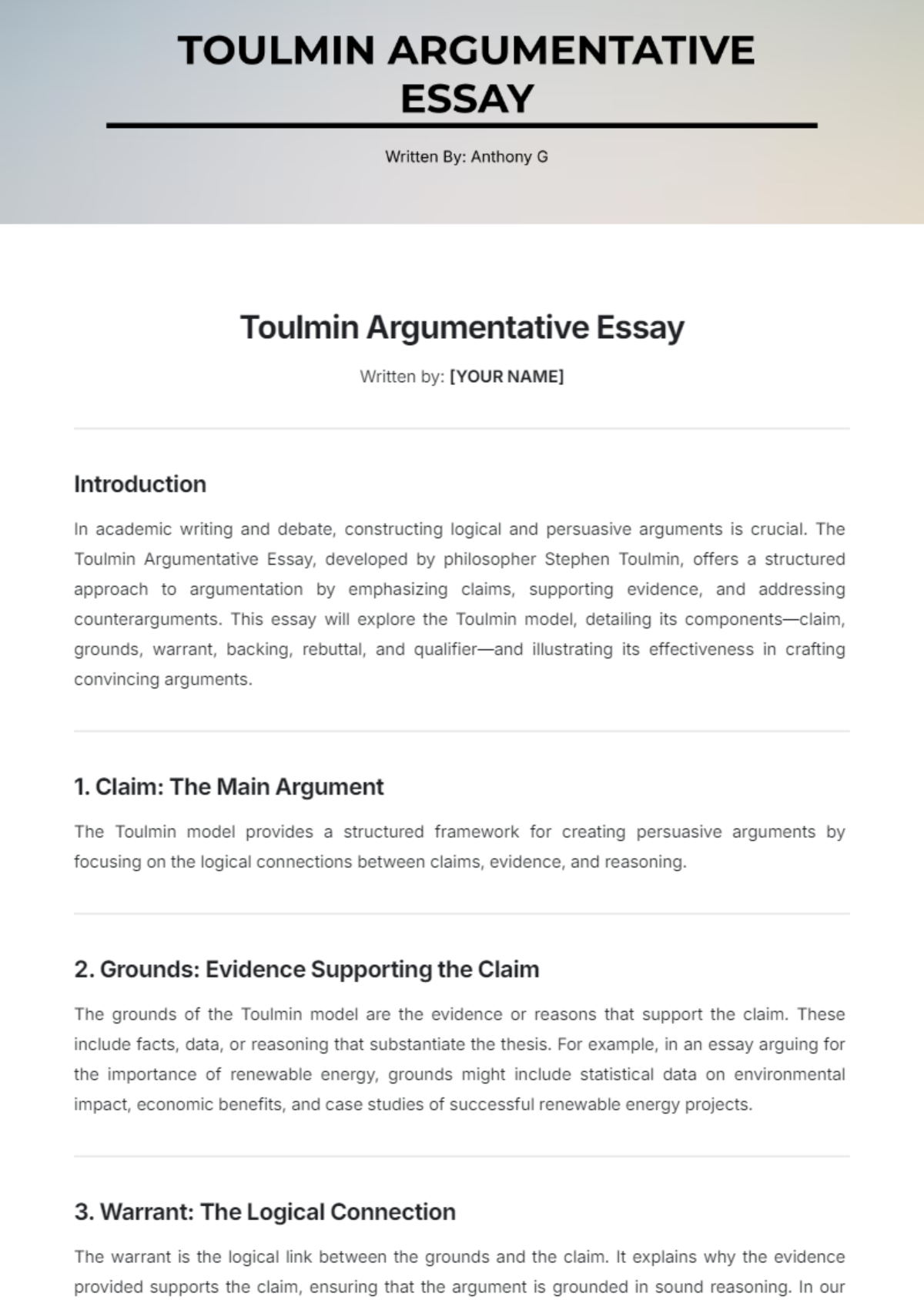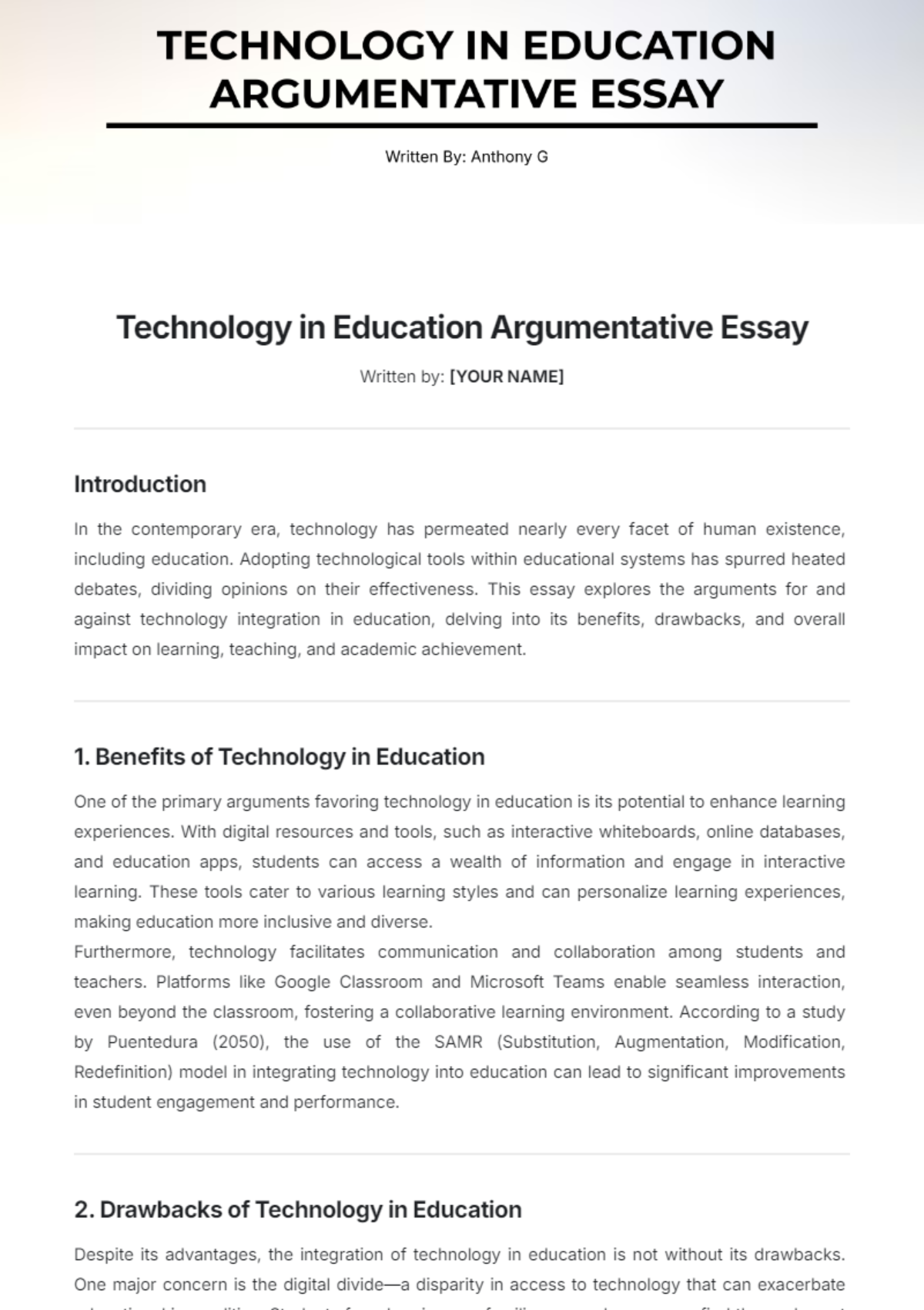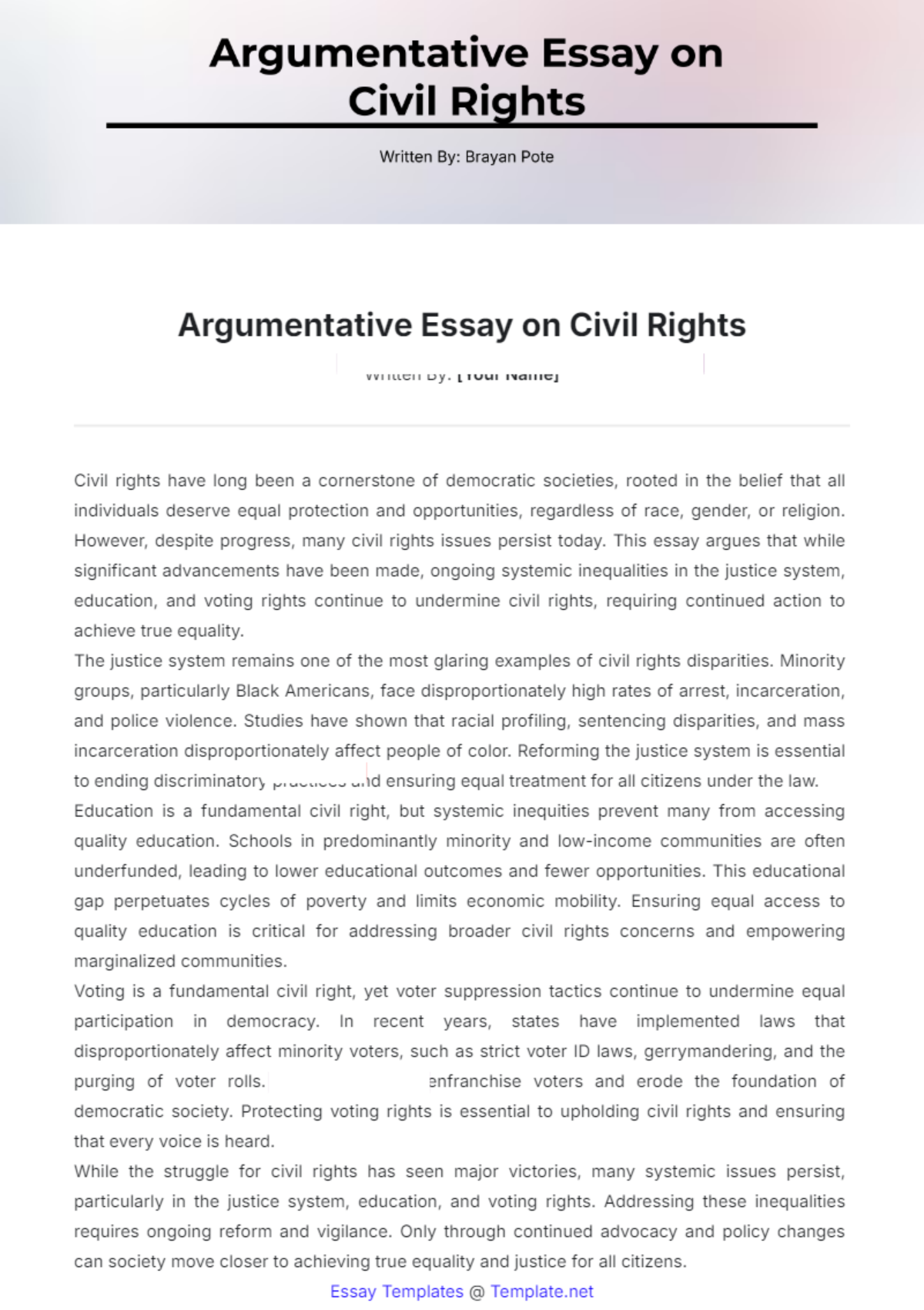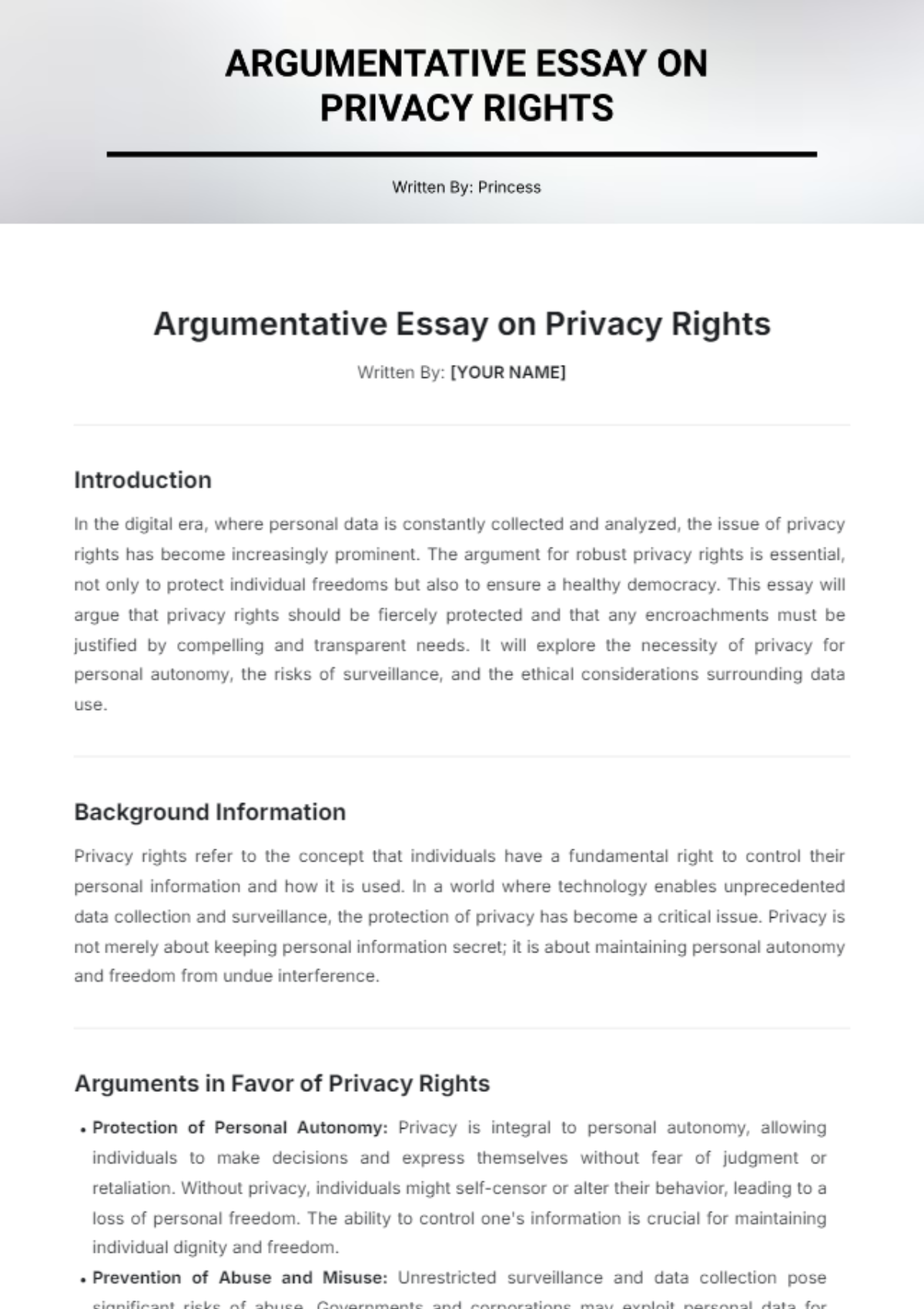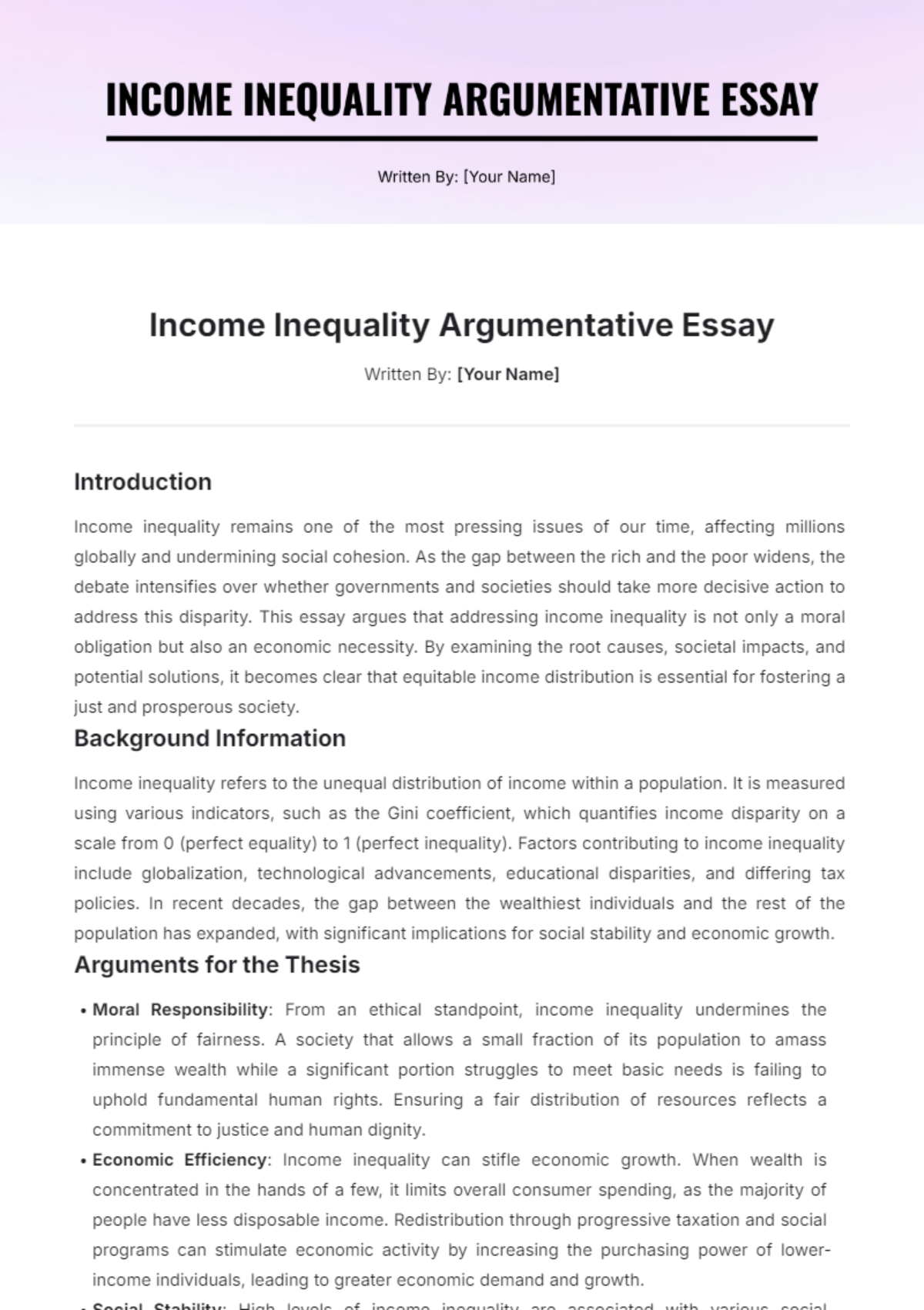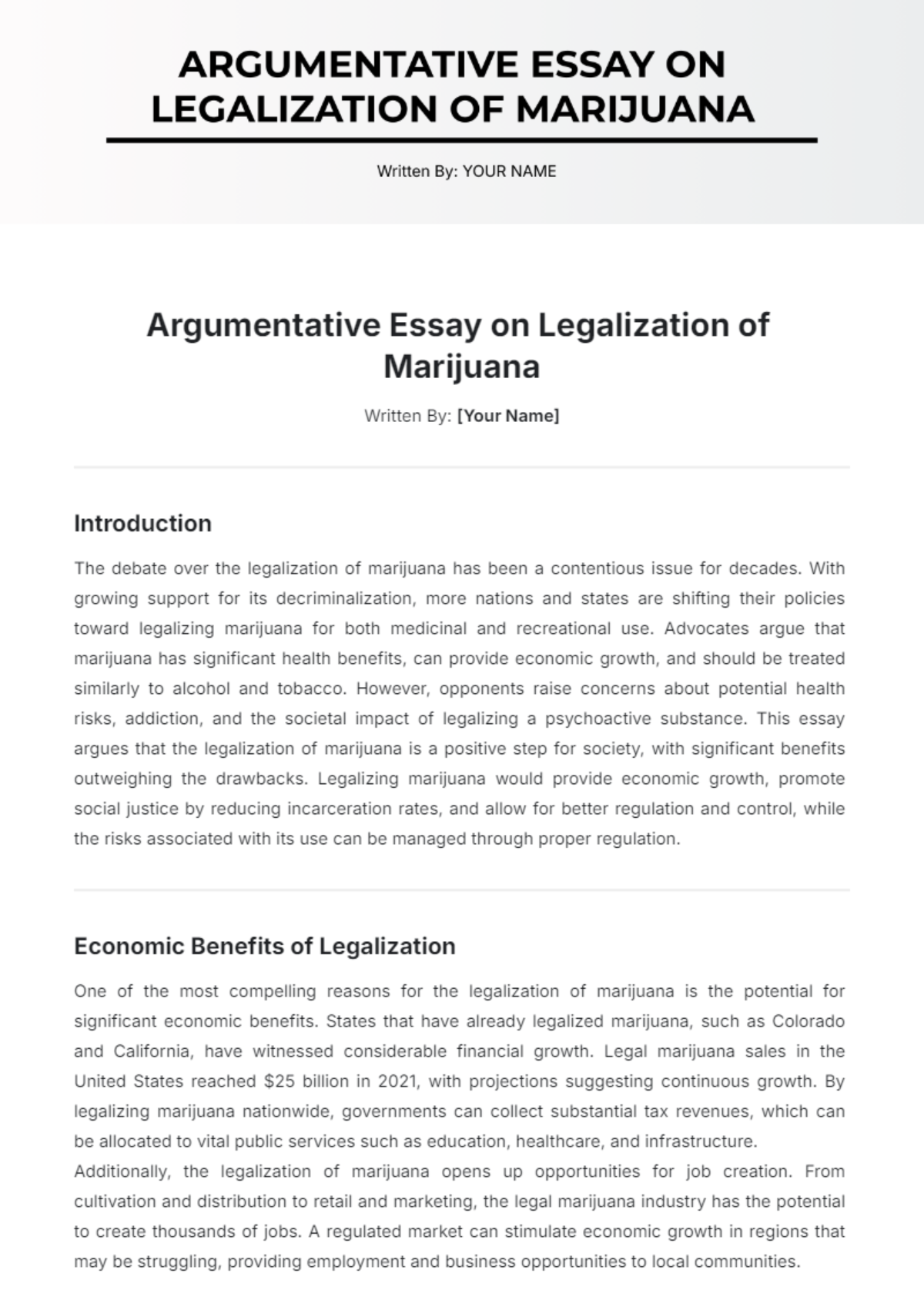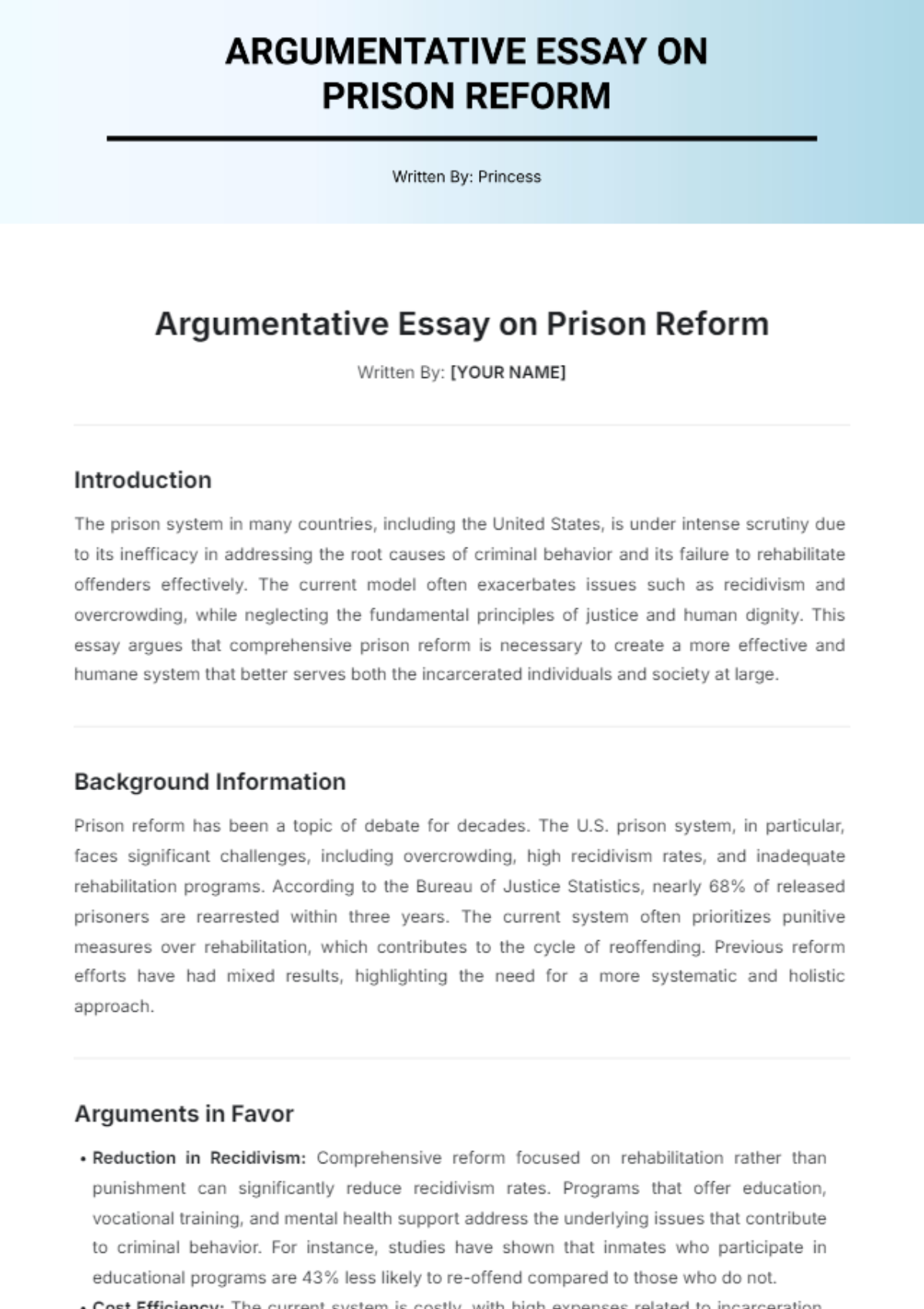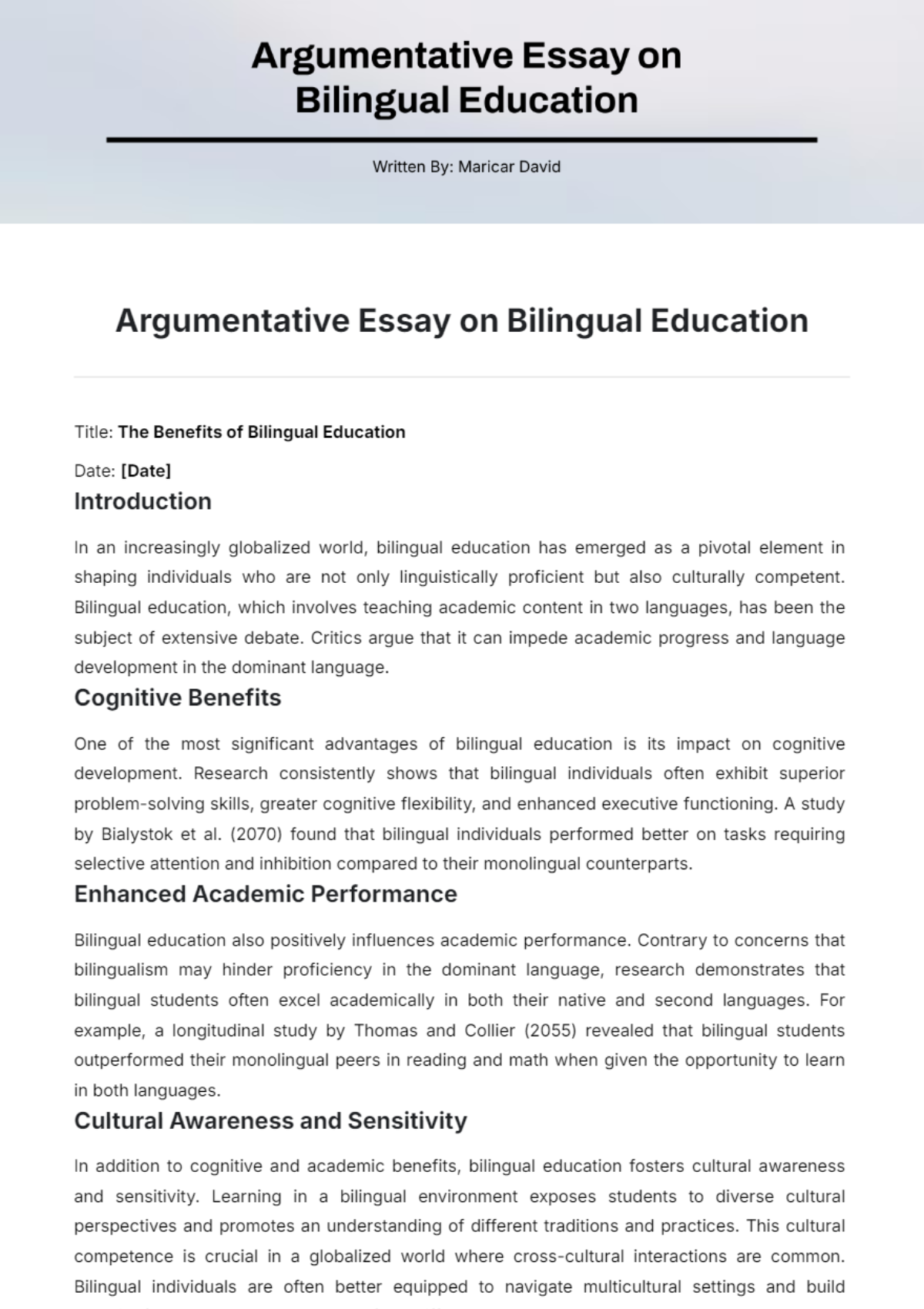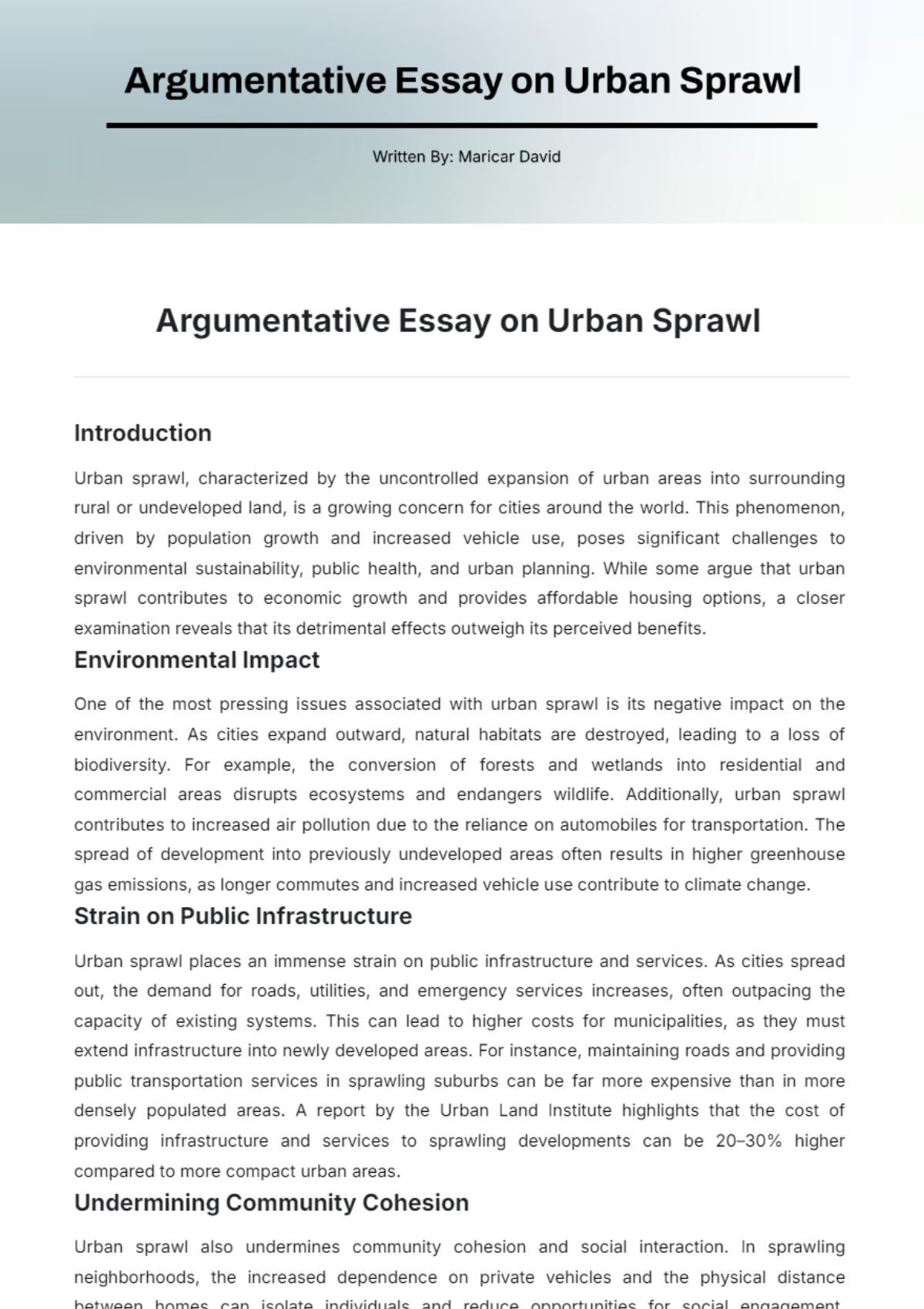Artificial Intelligence Argumentative Essay
Written By: [Your Name]
Introduction
Artificial Intelligence (AI) has become an integral part of modern society, influencing industries such as healthcare, education, finance, and even entertainment. As AI technology advances rapidly, so does the debate over its implications for humanity. Some argue that AI can enhance productivity, efficiency, and innovation, making it a necessary tool for progress. Others, however, raise concerns about job displacement, ethical risks, and loss of human control. This essay will argue that while AI presents undeniable benefits, it also poses serious challenges that must be carefully managed to ensure that its integration into society is ethical and beneficial to all.
The Benefits of AI
One of the most compelling arguments in favor of AI is its ability to transform industries by improving efficiency and productivity. In healthcare, AI-powered systems can assist in diagnosing diseases with greater accuracy than human doctors, predict outbreaks, and personalize treatment plans. For example, AI algorithms have proven capable of detecting certain cancers in their early stages through image recognition technology. In education, AI can tailor learning experiences to individual students' needs, promoting personalized learning and improving academic outcomes.
In addition, AI offers economic benefits. Automation of routine tasks allows businesses to reduce operational costs while increasing production. AI systems in manufacturing can work 24/7, leading to higher outputs without human fatigue. In the financial sector, AI enhances fraud detection, investment strategies, and customer service, increasing overall efficiency.
Furthermore, AI is at the forefront of scientific discovery. Machine learning models have enabled scientists to identify patterns in data that were previously undetectable. This has led to advances in areas such as climate science, pharmaceutical development, and space exploration.
The Risks of AI
Despite the numerous benefits, the rise of AI also brings significant risks that cannot be ignored. One of the most pressing concerns is job displacement. As AI and automation technologies continue to advance, many jobs, particularly those involving repetitive tasks, are at risk of becoming obsolete. For instance, self-driving vehicles could replace truck drivers, and automated checkout systems might eliminate cashier jobs. This shift could lead to massive unemployment, disproportionately affecting low-skilled workers and increasing social inequality.
Moreover, the ethical implications of AI are a major concern. AI systems, particularly those used in decision-making processes like hiring or law enforcement, are often criticized for their inherent biases. These biases stem from the data used to train AI models, which may reflect historical prejudices. As a result, AI can perpetuate and even amplify existing social inequalities, leading to unfair outcomes, such as biased hiring practices or discriminatory policing.
Another key risk is the potential loss of human control. AI systems, especially autonomous weapons or decision-making systems, can operate without human intervention. This raises questions about accountability—who is responsible when an AI system makes a mistake or causes harm? The use of AI in military applications, for instance, poses ethical dilemmas about whether machines should have the power to make life-and-death decisions.
The Need for Regulation and Ethical Frameworks
To mitigate these risks, there is a growing consensus that AI must be governed by ethical guidelines and regulations. Governments and international organizations need to establish frameworks that ensure AI is developed and used in ways that promote fairness, transparency, and accountability. For example, AI systems should be regularly audited for bias, and their decision-making processes should be explainable to users. Moreover, regulations should address data privacy concerns, particularly when AI systems rely on large amounts of personal information to function.
Additionally, policies must be put in place to address the economic impact of AI. Governments should invest in retraining programs for workers displaced by automation, helping them transition into new roles in the digital economy. This can alleviate some of the negative effects of job displacement and ensure that the benefits of AI are distributed more equitably across society.
Conclusion
AI has the potential to revolutionize industries, enhance productivity, and drive scientific innovation. However, its unchecked development also poses significant risks, including job loss, ethical concerns, and loss of human control. Society must approach AI with a balanced perspective, recognizing both its benefits and dangers. By implementing robust regulations and ethical frameworks, we can ensure that AI is developed responsibly and serves the best interests of humanity. The future of AI is bright, but it must be managed carefully to ensure that it enhances, rather than diminishes, the human experience.

